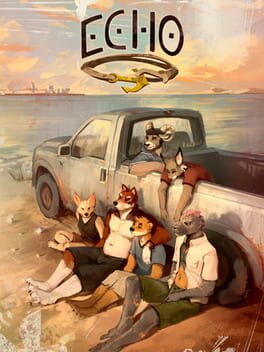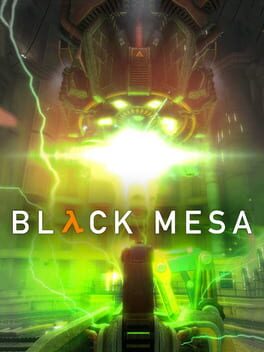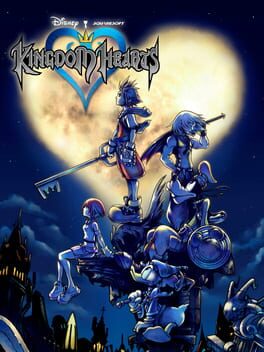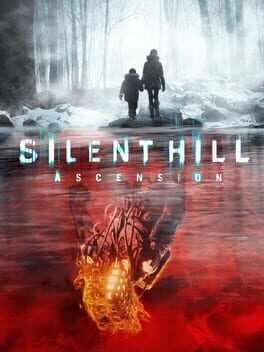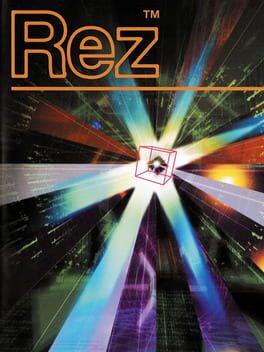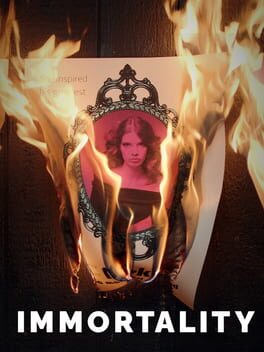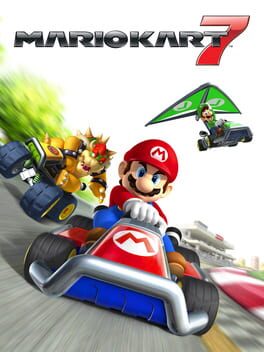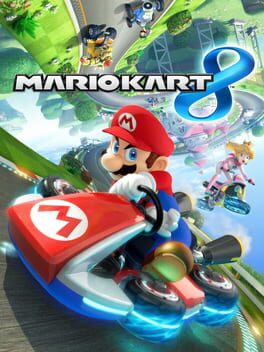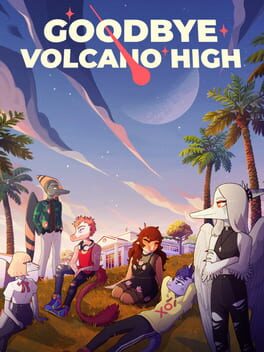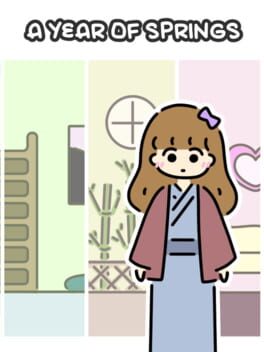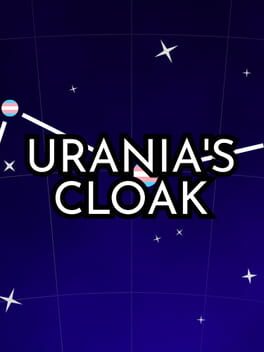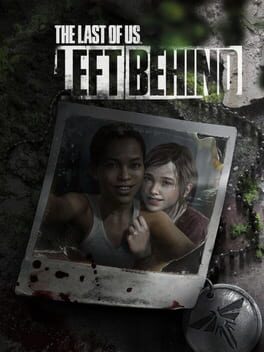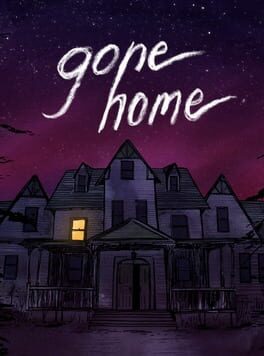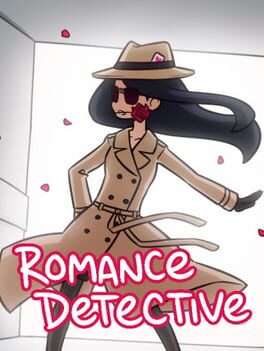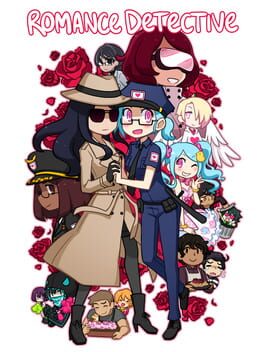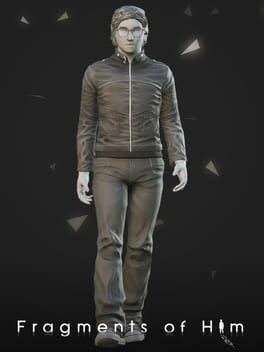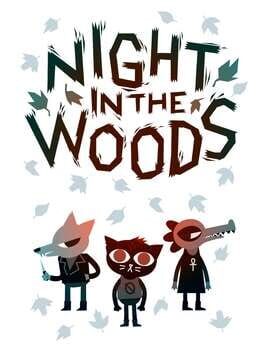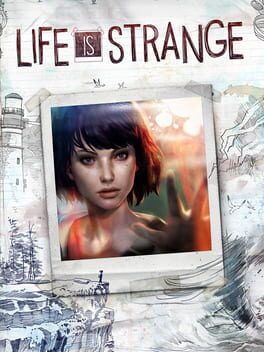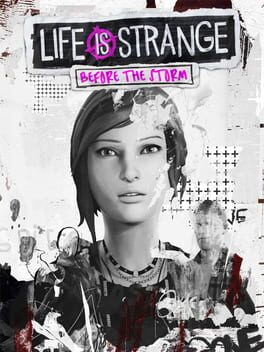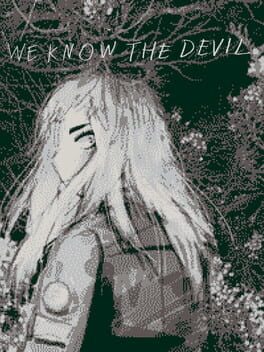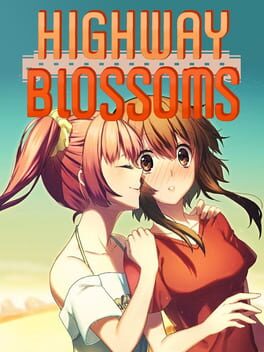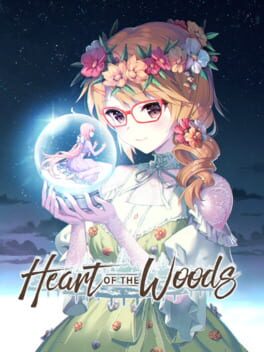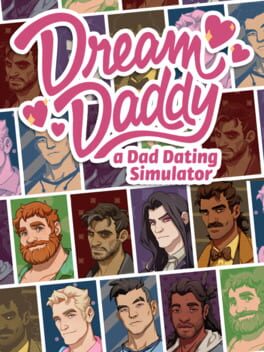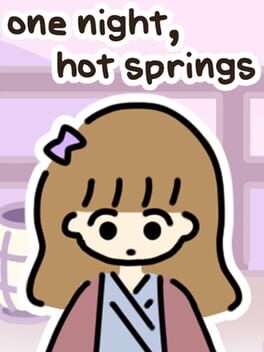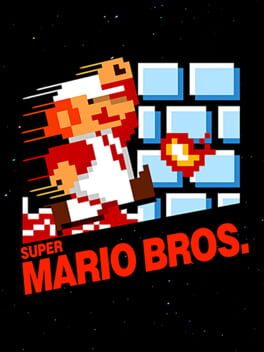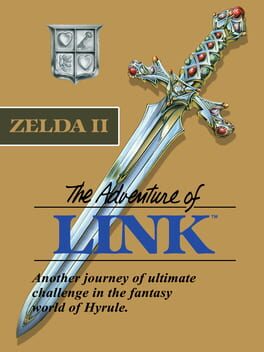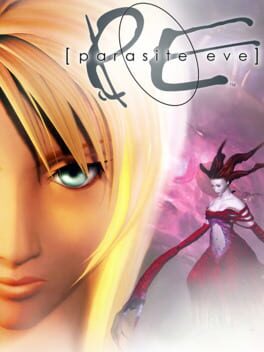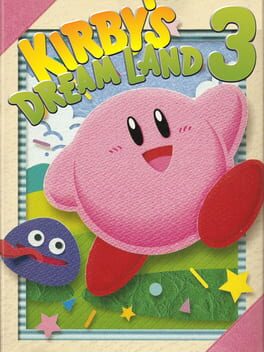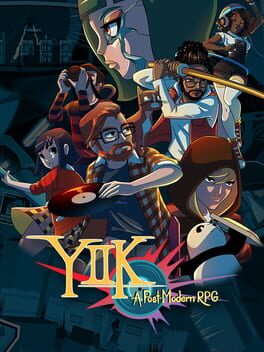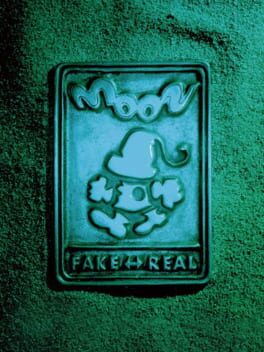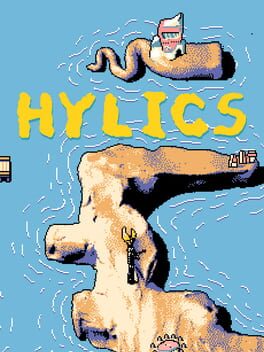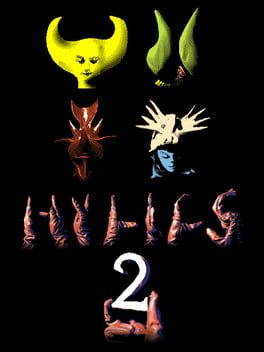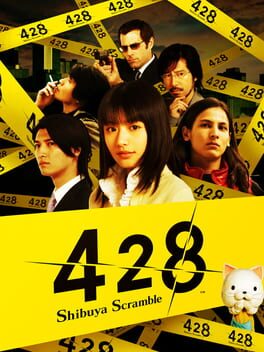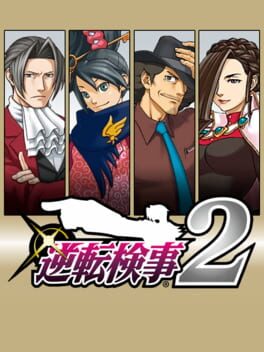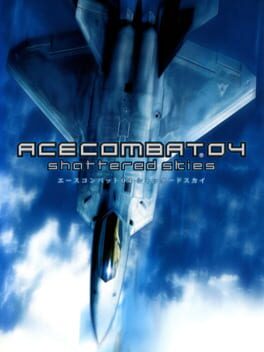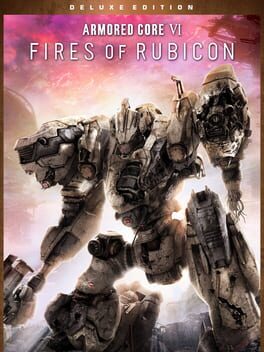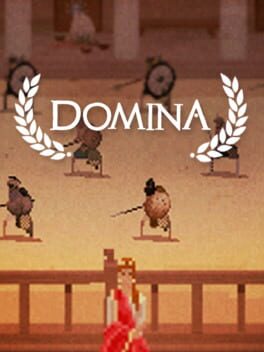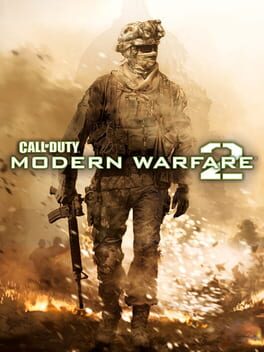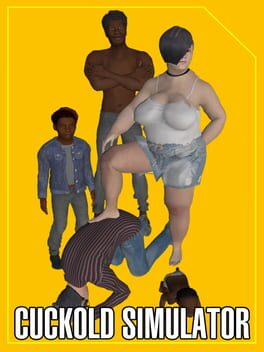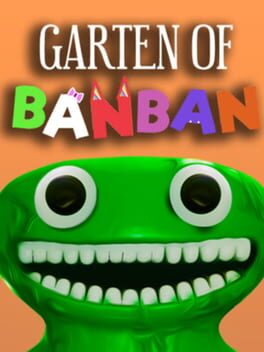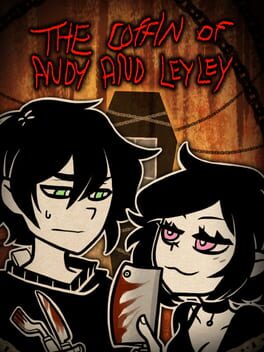BigCash___
10 reviews liked by BigCash___
Echo
2015
Echo is so dark, so poignant, so emotionally enthralling and draining that a casual recommendation feels like reckless endangerment. I have no idea how anyone is “supposed” to react to this story. I don’t know that I want anyone to experience some of what it has to offer. I investigated Echo on a lark, then lost a week of my waking hours playing it. Echo is so profound and fresh and real that it changed my perspective on the nature of games, and where good games can come from. I respect it so much to say I love it feels wrong.
I’ll start by saying this is the first visual novel to demonstrate to me why “visual novel” is a legitimate gaming genre. I’ve played some Phoenix Wright games, and they’re great! They have a lot of reading, but also enough interactivity with that reading to feel like games. However, that interactivity is merely elongation of a linear narrative. The distance between when the player understands how to solve a puzzle vs when the game will allow the player to solve it can be agonizing. The similar Danganronpa series is filled with blatant insecurity regarding the fun of advancing a linear narrative, to the point of introducing a hoverboard minigame for answering a basic multiple choice question.
But surprise, those are both series closer to classic point and click adventure games than visual novels. They certainly have enough text to fill a novel or more, but so does every modern Animal Crossing and Fire Emblem. I thought about this while playing a SRPG with fully voiced story segments that can last hours between its levels of gameplay. It is considered a visual novel due to the sheer volume of its story segments, but the story is not the gameplay. The two are separate and distinct such that you could have a complete experience by skipping either. Echo feels like a visual novel because it makes reading the game mechanic.
Echo makes “reading” feel like a gameplay verb by carefully focusing its narrative, game structure, and writing style on the feeling of experiencing a mystery. Not the lock-and-key puzzle of solving a mystery, like a Phoenix Wright murder trial; the aura of mystery that emanates from existential horror.
You play as a college student visiting your middle-of-nowhere small town over Spring Break, reuniting with five childhood friends after three years apart. You choose early on with which of the five friends you want to spend the week, a choice that dictates which of five stories you experience. As the week progresses, things take a turn for the spooky and the supernatural. Alone, each of Echo’s five routes are engaging, but their mysteries are not self-contained. Clues, context, and answers are sprinkled throughout every route, and all five are necessary for the full Echo experience.
It may sound simple on paper, but the craft is in the execution. The text of Echo would not work as a traditional novel separate from the trappings of being a game. Prose is expertly honed to the medium of its text box size. Descriptions are condensed so every idea is introduced, transitioned, or concluded one screen at time. Visual indications of who’s talking, who’s listening, who’s left the scene cut the need of so much “he said”-type structural grammar. Background images communicate changes in scenery, and the music punctuates changes in tone. The experience of reading is focused on the characters and their reactions at all times.
Interactivity arises from how much the game expects you to pay attention. It does not describe to you why a character acts a certain way. It expects you to infer the cast’s emotions based on your knowledge of what they should know and how they think. Functionally, this writing style allows the game to remain cryptic about context you would only glean from other routes. You are constantly evaluating whether your gaps in understanding are from not paying attention as a reader, or from context found in a different route. Although distended by hours, this task of continual inference arises from choices the player made. As such, gaps in your understanding feel like consequences of your actions as a player.
Echo offers few choices that matter, but their presence is always below the surface. New revelations make your mind wander to choices you’ve made in the past and anticipate choices you might have to make in the future. Continually feeling the friction of your player action’s consequences motivates you to keep reading. Wanting to alleviate that friction creates anticipation for which route you want to tackle next. This tension, of recontextualizing what you have done, what you have read, and why you want to read more in the future, is what elevates Echo as a visual novel. Echo justifies and excels within its classification as a game - it could not have existed in another medium.
Narrative tension can only exist when you’re invested in the characters, and I have to exclaim that the character writing is meticulous. Every character has a place and a history that exists separate from their plot relevance. Some routes will see you spend hours with characters that are only name-dropped or absent from others. I have met approximations of many of these people in real life with more specificity than an archetype. The naive young Christian man who gasps at swears, takes an hour in the shower, and makes a face when too much mayonnaise gets on his chicken sandwich. The witty girl with a bad home life who majored in psychology and can’t stop herself from correcting and analyzing every person and situation to hide from her own emotional reality. The writing is magnanimous enough to find the human dignity in meth addicts and honest enough to find the cruelty that blooms in the most vulnerable of friendships. Sometimes funny, often tragic, the character interactions alone were engaging enough for me to extend what was planned to be a cursory investigation into a complete route play-through.
The first route I finished truly shocked me. I was incoherent for hours afterwards trying to process it. Its multiple twists within its devastating climax retroactively reverberated through every assumption I had made about what kind of game I was playing, and how the game was presenting itself. Echo had weaponized my prejudices and assumptions as an outsider, (that I was playing some sort of cringey gay furry dating simulator), against me so subtly, so flawlessly, that I had been lead to focus on the wrong details about the player character and his relationships. Events and details I had passed off as perhaps careless usage of unfamiliar tropes were, in fact, completely accounted for by the narrative. The game knew exactly the moral weight and repercussions of the player character’s thoughts and actions, and I felt the fool for assuming they were handled lightly.
I do not fault myself for having low expectations, because it is so rare to find a work that understands the nature of evil. The limitations of evil, its narrative uses, the difference between the impartial evils of the universe and the unique flavors invented by human ingenuity. How Echo navigates the darkness it explores with deft and grace is impressive once you see the full list of taboo topics this game juggles. We have:
- Straight sex - Gay sex - Orgies - Rape - Murder - Dismemberment - Torture - Lynching - Homophobic violence - Racism - Suicide - Drowning - Gun violence - Domestic abuse - Child abuse - Minor endangerment - Drug abuse - Claustrophobic nightmare fuel - Arachnaphobic nightmare fuel - Suffocation nightmare fuel - Night terrors and sleep paralysis - Supernatural existential horror
I would not fault anyone for turning away at even one of these subjects; the potential for irresponsible mishandling is so high. Thankfully every heavy scenario is text-based, with no explicit drawings of nudity or violence. Although many, many terrible things happen, Echo is not interested in being misery or torture porn. It is a horror game with purpose.
For the different types of horror in Echo to work, it invests heavily in presenting the realities of its setting and cast. Fear comes both with familiarity of your neighbors and doubt in that same familiarity. Being lost alone on a road at night can be scary, but sometimes recognizing the trailer of the local crack dealer is scarier. Discrimination exists for gay characters, Mormons, immigrants, indiginous peoples, differing levels of wealth and education (and species, too, but not in a way that directly correlates to any of the other prejudices. I like that!Get owned, Zootopia). There’s an awareness of psychology and sociology in the writing more than saying a character “has anxiety” or a certain ancestry, with authentic dramatization given to its characters’ intersectionality.
Echo understands monsters are not made in a vacuum. It understands the lack of economic prospects, the lack of law enforcement, the lack of community that lead people to destructive tendencies. Stupidity, ignorance, curiosity, fear, trauma - these combine to make forms of evil that are real and palpable. The most heinous actions in Echo are committed by people. They’re unaware or uncaring of the trauma they cause to others, compartmentalizing or justifying what they do. The real horror is how, left undetected, without a goal, and without avarice, vices can continue and escalate. Just doing what comes naturally, when unchecked, warps someone’s sense of reality to reach equilibrium with the environment around them, striking the balance of perpetuating evils without attracting attention. Not out of shame or fear, but the base desire to be left well enough alone.
(Please don’t misunderstand, Echo is not so quaint as to say “what if people were the real monsters all along?” We have genuine spooks. I’m too old and dead inside to be scared of ghosts, but for a week after I finished the game, every night after I was in bed and turned off the lights, I saw one of the spooks from this game. My brain associated it with darkness that strongly. So, uh, take that as my spoiler free review of the supernatural horrors this game contains. If I were a teen I would 100% have not finished this game nor slept for a month.)
I also don’t want to misrepresent Echo as being all horror all the time. Echo’s horror works because its characters feel real. They’re funny. They’re lame. They have sex for bad reasons and have instant regret. There are no paragons of virtue. Their relationships suck.
I don’t like these characters. I don’t love these characters. I would not want to be friends with any of them. But I know these characters. I understand them. For some of them, my familiarity borders on contempt or disgust.
But after finishing the game, I miss them. I miss them in the way all good fiction makes you miss watching people make life-defining decisions and fight for lasting change. I miss the constant revelations both mundane and profound. I miss the feeling you are witnessing the most important moments of someone’s life, regardless if it ends in tragedy.
I felt something different after each of the five stories. One sent me into the limbo of wanting to cry. Not as in, I felt close to crying. Far from it. It was that rare feeling where your emotions are intense and inscrutable, and you long for the simplicity of emotional understanding, the catharsis that comes from crying. But what you feel is complex and hidden, making you feel a stranger to yourself. It was only after ruminating on everything from all five stories that I distilled what Echo is about.
Echo grasps at the face of evil because it posits an asymmetry of our imperfect world: that the opposite of evil isn’t goodness, or happiness, but meaning. That moving away from evil looks like becoming a slightly less broken version of ourselves, even if the process makes us sadder. Echo captures that sense of longing and sorrow for thinking about what could have been. Not in a rosy sense, centered around nostalgia, but the pain that comes from recognizing too late how an environment has been suffocating you. Or tasting what it feels like to be properly nurtured after years of ignorance of your own neglect. And the fear that comes from realizing you have outgrown all your comforts, and everyone you ever loved in your life, leaving you stranded and clueless on how to rely on yourself.
The horrors in Echo, while effective, are background to framing the concept that even if everything you see is fake, the emotions you have are real. It doesn’t matter if the danger was imagined. It doesn’t matter if the monsters we fear in the dark are real. The shared experiences with others, and what you learn about each other in times of crisis, what you learn about yourself, is the reality that matters. As such, the endings all felt satisfying even if, on paper, so much was left unexplained. Because knowing what went bump in the night does not matter as much as the friends who came to your aid, the regret you feel over your inactions, or the resolve cultivated within yourself. After a certain threshold of loss and pain, you don’t care about knowing why they happened. You have to deal with the logistics of those wounds, regardless of whether they scar or heal.
I miraculously got all the “good” endings in every route with good and bad endings. Going back to replay some of the choices that lead to “bad” endings solidified for me how the game was enforcing its messages. The choices that tempt you away from the “good” endings are ones that let you cheat yourself, where you seek happiness or convenience over doing what is right. The “good” endings are often still filled with tragedy. But the characters might have truth, self-knowledge, or fewer regrets than if you chose differently.
In my rating system, I reserve 5/5 stars for the pinnacle of the medium. At the time of this review, it is the 13th game I’ve awarded this honor. It is not flawless, but for a game released for free, why even bother saying so. It took me many agonizing days writing this review, and I felt very much like Anton Ego in my internal struggle to admit I could not give this game less than full marks.Which I also internally found very funny since I have like 5 followers and am not the most respected critic in France lmao
For me, Echo is a new type of game, and as said by Anton, it needs defenders and friends. I went in expecting to bounce at some weird gay furry cringe, and instead cringed because it was more human and relatable than most games I’ve played. I had no idea furry-ness had reached such organization in creative endeavors as to create entire games, much less that this is one of among an entire “furry visual novel” sub-genre. (There are hundreds of projects like this one! Who knew?) I’m truly fascinated by the concept of games being funded on patreon over the course of years, released for free after they’re completed. Art completely unbeholden to any form of external review, profit motive, or timetable. Games that are built with and influenced by their supportive community. It’s a model that feels so radical as to be non-functional, yet this single proof of concept is enough to rekindle my imagination for the future of the medium.
I’ll start by saying this is the first visual novel to demonstrate to me why “visual novel” is a legitimate gaming genre. I’ve played some Phoenix Wright games, and they’re great! They have a lot of reading, but also enough interactivity with that reading to feel like games. However, that interactivity is merely elongation of a linear narrative. The distance between when the player understands how to solve a puzzle vs when the game will allow the player to solve it can be agonizing. The similar Danganronpa series is filled with blatant insecurity regarding the fun of advancing a linear narrative, to the point of introducing a hoverboard minigame for answering a basic multiple choice question.
But surprise, those are both series closer to classic point and click adventure games than visual novels. They certainly have enough text to fill a novel or more, but so does every modern Animal Crossing and Fire Emblem. I thought about this while playing a SRPG with fully voiced story segments that can last hours between its levels of gameplay. It is considered a visual novel due to the sheer volume of its story segments, but the story is not the gameplay. The two are separate and distinct such that you could have a complete experience by skipping either. Echo feels like a visual novel because it makes reading the game mechanic.
Echo makes “reading” feel like a gameplay verb by carefully focusing its narrative, game structure, and writing style on the feeling of experiencing a mystery. Not the lock-and-key puzzle of solving a mystery, like a Phoenix Wright murder trial; the aura of mystery that emanates from existential horror.
You play as a college student visiting your middle-of-nowhere small town over Spring Break, reuniting with five childhood friends after three years apart. You choose early on with which of the five friends you want to spend the week, a choice that dictates which of five stories you experience. As the week progresses, things take a turn for the spooky and the supernatural. Alone, each of Echo’s five routes are engaging, but their mysteries are not self-contained. Clues, context, and answers are sprinkled throughout every route, and all five are necessary for the full Echo experience.
It may sound simple on paper, but the craft is in the execution. The text of Echo would not work as a traditional novel separate from the trappings of being a game. Prose is expertly honed to the medium of its text box size. Descriptions are condensed so every idea is introduced, transitioned, or concluded one screen at time. Visual indications of who’s talking, who’s listening, who’s left the scene cut the need of so much “he said”-type structural grammar. Background images communicate changes in scenery, and the music punctuates changes in tone. The experience of reading is focused on the characters and their reactions at all times.
Interactivity arises from how much the game expects you to pay attention. It does not describe to you why a character acts a certain way. It expects you to infer the cast’s emotions based on your knowledge of what they should know and how they think. Functionally, this writing style allows the game to remain cryptic about context you would only glean from other routes. You are constantly evaluating whether your gaps in understanding are from not paying attention as a reader, or from context found in a different route. Although distended by hours, this task of continual inference arises from choices the player made. As such, gaps in your understanding feel like consequences of your actions as a player.
Echo offers few choices that matter, but their presence is always below the surface. New revelations make your mind wander to choices you’ve made in the past and anticipate choices you might have to make in the future. Continually feeling the friction of your player action’s consequences motivates you to keep reading. Wanting to alleviate that friction creates anticipation for which route you want to tackle next. This tension, of recontextualizing what you have done, what you have read, and why you want to read more in the future, is what elevates Echo as a visual novel. Echo justifies and excels within its classification as a game - it could not have existed in another medium.
Narrative tension can only exist when you’re invested in the characters, and I have to exclaim that the character writing is meticulous. Every character has a place and a history that exists separate from their plot relevance. Some routes will see you spend hours with characters that are only name-dropped or absent from others. I have met approximations of many of these people in real life with more specificity than an archetype. The naive young Christian man who gasps at swears, takes an hour in the shower, and makes a face when too much mayonnaise gets on his chicken sandwich. The witty girl with a bad home life who majored in psychology and can’t stop herself from correcting and analyzing every person and situation to hide from her own emotional reality. The writing is magnanimous enough to find the human dignity in meth addicts and honest enough to find the cruelty that blooms in the most vulnerable of friendships. Sometimes funny, often tragic, the character interactions alone were engaging enough for me to extend what was planned to be a cursory investigation into a complete route play-through.
The first route I finished truly shocked me. I was incoherent for hours afterwards trying to process it. Its multiple twists within its devastating climax retroactively reverberated through every assumption I had made about what kind of game I was playing, and how the game was presenting itself. Echo had weaponized my prejudices and assumptions as an outsider, (that I was playing some sort of cringey gay furry dating simulator), against me so subtly, so flawlessly, that I had been lead to focus on the wrong details about the player character and his relationships. Events and details I had passed off as perhaps careless usage of unfamiliar tropes were, in fact, completely accounted for by the narrative. The game knew exactly the moral weight and repercussions of the player character’s thoughts and actions, and I felt the fool for assuming they were handled lightly.
I do not fault myself for having low expectations, because it is so rare to find a work that understands the nature of evil. The limitations of evil, its narrative uses, the difference between the impartial evils of the universe and the unique flavors invented by human ingenuity. How Echo navigates the darkness it explores with deft and grace is impressive once you see the full list of taboo topics this game juggles. We have:
- Straight sex - Gay sex - Orgies - Rape - Murder - Dismemberment - Torture - Lynching - Homophobic violence - Racism - Suicide - Drowning - Gun violence - Domestic abuse - Child abuse - Minor endangerment - Drug abuse - Claustrophobic nightmare fuel - Arachnaphobic nightmare fuel - Suffocation nightmare fuel - Night terrors and sleep paralysis - Supernatural existential horror
I would not fault anyone for turning away at even one of these subjects; the potential for irresponsible mishandling is so high. Thankfully every heavy scenario is text-based, with no explicit drawings of nudity or violence. Although many, many terrible things happen, Echo is not interested in being misery or torture porn. It is a horror game with purpose.
For the different types of horror in Echo to work, it invests heavily in presenting the realities of its setting and cast. Fear comes both with familiarity of your neighbors and doubt in that same familiarity. Being lost alone on a road at night can be scary, but sometimes recognizing the trailer of the local crack dealer is scarier. Discrimination exists for gay characters, Mormons, immigrants, indiginous peoples, differing levels of wealth and education (and species, too, but not in a way that directly correlates to any of the other prejudices. I like that!
Echo understands monsters are not made in a vacuum. It understands the lack of economic prospects, the lack of law enforcement, the lack of community that lead people to destructive tendencies. Stupidity, ignorance, curiosity, fear, trauma - these combine to make forms of evil that are real and palpable. The most heinous actions in Echo are committed by people. They’re unaware or uncaring of the trauma they cause to others, compartmentalizing or justifying what they do. The real horror is how, left undetected, without a goal, and without avarice, vices can continue and escalate. Just doing what comes naturally, when unchecked, warps someone’s sense of reality to reach equilibrium with the environment around them, striking the balance of perpetuating evils without attracting attention. Not out of shame or fear, but the base desire to be left well enough alone.
(Please don’t misunderstand, Echo is not so quaint as to say “what if people were the real monsters all along?” We have genuine spooks. I’m too old and dead inside to be scared of ghosts, but for a week after I finished the game, every night after I was in bed and turned off the lights, I saw one of the spooks from this game. My brain associated it with darkness that strongly. So, uh, take that as my spoiler free review of the supernatural horrors this game contains. If I were a teen I would 100% have not finished this game nor slept for a month.)
I also don’t want to misrepresent Echo as being all horror all the time. Echo’s horror works because its characters feel real. They’re funny. They’re lame. They have sex for bad reasons and have instant regret. There are no paragons of virtue. Their relationships suck.
I don’t like these characters. I don’t love these characters. I would not want to be friends with any of them. But I know these characters. I understand them. For some of them, my familiarity borders on contempt or disgust.
But after finishing the game, I miss them. I miss them in the way all good fiction makes you miss watching people make life-defining decisions and fight for lasting change. I miss the constant revelations both mundane and profound. I miss the feeling you are witnessing the most important moments of someone’s life, regardless if it ends in tragedy.
I felt something different after each of the five stories. One sent me into the limbo of wanting to cry. Not as in, I felt close to crying. Far from it. It was that rare feeling where your emotions are intense and inscrutable, and you long for the simplicity of emotional understanding, the catharsis that comes from crying. But what you feel is complex and hidden, making you feel a stranger to yourself. It was only after ruminating on everything from all five stories that I distilled what Echo is about.
Echo grasps at the face of evil because it posits an asymmetry of our imperfect world: that the opposite of evil isn’t goodness, or happiness, but meaning. That moving away from evil looks like becoming a slightly less broken version of ourselves, even if the process makes us sadder. Echo captures that sense of longing and sorrow for thinking about what could have been. Not in a rosy sense, centered around nostalgia, but the pain that comes from recognizing too late how an environment has been suffocating you. Or tasting what it feels like to be properly nurtured after years of ignorance of your own neglect. And the fear that comes from realizing you have outgrown all your comforts, and everyone you ever loved in your life, leaving you stranded and clueless on how to rely on yourself.
The horrors in Echo, while effective, are background to framing the concept that even if everything you see is fake, the emotions you have are real. It doesn’t matter if the danger was imagined. It doesn’t matter if the monsters we fear in the dark are real. The shared experiences with others, and what you learn about each other in times of crisis, what you learn about yourself, is the reality that matters. As such, the endings all felt satisfying even if, on paper, so much was left unexplained. Because knowing what went bump in the night does not matter as much as the friends who came to your aid, the regret you feel over your inactions, or the resolve cultivated within yourself. After a certain threshold of loss and pain, you don’t care about knowing why they happened. You have to deal with the logistics of those wounds, regardless of whether they scar or heal.
I miraculously got all the “good” endings in every route with good and bad endings. Going back to replay some of the choices that lead to “bad” endings solidified for me how the game was enforcing its messages. The choices that tempt you away from the “good” endings are ones that let you cheat yourself, where you seek happiness or convenience over doing what is right. The “good” endings are often still filled with tragedy. But the characters might have truth, self-knowledge, or fewer regrets than if you chose differently.
In my rating system, I reserve 5/5 stars for the pinnacle of the medium. At the time of this review, it is the 13th game I’ve awarded this honor. It is not flawless, but for a game released for free, why even bother saying so. It took me many agonizing days writing this review, and I felt very much like Anton Ego in my internal struggle to admit I could not give this game less than full marks.
For me, Echo is a new type of game, and as said by Anton, it needs defenders and friends. I went in expecting to bounce at some weird gay furry cringe, and instead cringed because it was more human and relatable than most games I’ve played. I had no idea furry-ness had reached such organization in creative endeavors as to create entire games, much less that this is one of among an entire “furry visual novel” sub-genre. (There are hundreds of projects like this one! Who knew?) I’m truly fascinated by the concept of games being funded on patreon over the course of years, released for free after they’re completed. Art completely unbeholden to any form of external review, profit motive, or timetable. Games that are built with and influenced by their supportive community. It’s a model that feels so radical as to be non-functional, yet this single proof of concept is enough to rekindle my imagination for the future of the medium.
Black Mesa
2015
Lowering the bar.
Black Mesa is a fan remake-cum-reimagining of Half-Life, and it shows. It’s a very technically impressive game, extracting just about everything it can possibly wring out of the damp towel that is the Source engine. It’s a fairly well-designed game, by virtue of most of its elements being copied over wholesale from the original Half-Life. It’s obviously made by people who are very, very passionate about Valve’s work. But Black Mesa forgets, omits, or changes enough of what worked before that it ultimately commits the mortal and unforgivable sin of making Half-Life kind of boring, a crime for which it must be punished by making it boil upside-down beneath the lake of ice for all eternity.
I like Half-Life a lot. I hardly love playing Half-Life, but it’s a game that I both enjoy and respect, which is a sadly uncommon combination. I’ve never existed in a world without Half-Life, a statement which I’m hoping will make some of you wither into dust, and that makes it a bit difficult to personally gauge the impact it had. Obviously, there are hundreds upon hundreds of reports detailing exactly what made Half-Life so special. There are articles and videos and commentary tracks all recounting all of the little quirks and nuances that later shooters silently adopted because it was what they were expected to do now. I can appreciate it from a sort-of dispassionate, outside perspective; as far as I can tell, shooters before Half-Life were mostly just copying Doom’s homework, for better and for worse. If nothing else, you can absolutely tell that a big shift to a more cinematic style was emerging with Half-Life — again, for better and for worse.
Regardless of the finer details, Half-Life is now a very old game. Twenty-five years old, in fact. And the neat thing about games that get that old is that it inherently primes people for a remake. “The gameplay needs an update”, “the graphics look bad”, “fix Xen”, the masses say. It’s a mentality you have for toys. Make it shiny, make it new, make it talk when you pull the string on its back, make sure you add lens flares and ray tracing. It’s certainly nothing that Half-Life needs. Half-Life is already an incredibly solid game that had a fierce impact on the industry and near single-handedly made Valve the monolith that it is today. To suggest that Half-Life — just about any game, really — needs a remake is to fundamentally assign this toy mentality to art.
But, hell, a remake could still be cool.
I like Half-Life, and Crowbar Collective likes Half-Life, and a lot of other people all really like Half-Life. Besides, the game has already been made for them. If all they’re doing is porting it from GoldSrc to Source, what’s the worst that could happen?
We ultimately don’t know the worst case scenario, because it never came to pass. We do, however, know of a pretty rough scenario, which is Black Mesa releasing in the state that it’s in.
The initial few levels are actually very impressive, largely because of how close they play to the original. The tram ride is there, the resonance cascade is there, the brutal ammo restrictions and tight corridors filled with headcrabs and zombies are still there. Hell, even your first encounters with the aliens are tense and unforgiving, encouraging you to use flares to light enemies on fire in order to conserve your ammo. It’s neat! All the way from the start of Anomalous Materials to the end of Office Complex, Black Mesa feels remarkably like Half-Life fully realized. It’s all shiny and pretty, you’ve got some mechanics to play with that were originally intended but didn’t make it to the final release, and it’s a very enjoyable time. You can even forgive Crowbar Collective for getting rid of the scientist who dives through the window and says “greetings”.
And then We’ve Got Hostiles starts.
The HECU still look like they’re holding MP5s and pistols, but they’re secretly wielding Freeman-seeking laser beams. There’s no longer an ounce of hesitation on their part; if they see a hair on your head poking out from cover, they’re shooting you, and you’re taking damage. They’re like Blood cultists in body armor. Also in keeping with pre-Half-Life design decisions, their AI has been drastically dumbed down. The HECU will still at least try to flank you, but they no longer seem all that interested in the concept of their own survival. They’ll rush you down open corridors with no cover, seemingly only interested in getting as in your face as they possibly can, regardless of whether they’re holding an SMG or a shotgun. Throwing a grenade at their feet will make them loudly announce that there’s a nearby grenade, but they don’t ever seem to actually try getting away from it. They’ll do the little Source Engine shuffle that the Combine like to do — if you’ve played enough Half-Life 2, you know exactly what I’m referring to — and then blow up. This is in obvious and stark contrast to the HECU in Half-Life who, while hardly all the avatars of John Rambo, at least seemed like they weren’t showing up just to die. Combat in Black Mesa against the Marines largely just boils down to you and a grunt sprinting at one another with the fire button held down and you winning the war of attrition by virtue of being the only guy here with power armor. Compared to the earlier, more impactful Black Mesa fights against Vortigaunts and houndeyes, this is a letdown; compared to the HECU in the original, it’s shocking.
Given how frequently you enter skirmishes with the Marines, it's something you really can't ever get away from for the overwhelming majority of the game. Crowbar Collective mentioned that their goal was to "make combat more intense", and it seems as though they've tried to do that simply by flooding rooms with significantly more enemies. By my count, Half-Life's We've Got Hostiles pits you against 21 HECU; Black Mesa sends out 32. It doesn't sound like much, and it isn't at first, but it starts to add up fast. Someone on Reddit actually went through and counted every single on-screen HECU kill, and it comes out to over 550 in Black Mesa compared to Half-Life's 250. When you also take into consideration the fact that pre-Xen levels are condensed compared to the original (with On A Rail being noticeably cut way down), the enemy density is completely out of control.
It's not just that there are more of them now, either. The HECU take roughly the same amount of bullets to put down (about 60 health in Black Mesa relative to the original 80), and your ammo is even tighter than it used to be. Being able to carry 250 SMG bullets with ten grenade rounds on the alt-fire was a bit too freeing and a bit too fun, so now you're hard-capped at 150 SMG bullets and three grenade rounds. The pistol now only holds 150 rounds, instead of 250. The shotgun now holds 64 shells instead of 125. The enemy AI is somehow stupider than the one from twenty-five years ago, so it's not like the game has been made any more difficult now that Gordon's got the HEV suit without pockets; holding the MP5 at head height and clicking from a distance seems to do most of the work for you, and the HECU drop about as much SMG ammo as it takes to kill them. The optimal strategy, it seems, is to just hang back and fish for damage multiplier headshots with the MP5 and then go to the next slaughtermap room to continue the process for the next seven hours until Xen.
While Half-Life's Xen was the end product of tightening deadlines and dwindling budgets, Black Mesa's Xen exists almost as a complete refutation of the original's design circumstances; it very obviously got an overwhelming amount of development time and assets and takes up nearly a third of the new game, whereas the previous Xen was over and done with in about twenty minutes. I think Xen is where Black Mesa most obviously becomes a fan game, because it's clear that nobody in charge ever felt the need to say "no" to anything. It's incredibly long, packed to the gills with scripted setpieces and references to later Half-Life titles, and it keeps using the same wire connecting puzzles and conveyor belt rides over and over again in the hopes that making Xen longer will make Xen better. There's a section here in Interloper where you have to bounce off of one of three spring platforms to kill a Controller, and then that opens a path for you to destroy a fleshy glob maintaining a force field. You would think that the fact that this is split into three very distinct paths would mean that you would thus have three very distinct encounters, but they all play almost identically to one another. All three of them are circular rooms with a Controller floating around, and you break his crystals in order to make him vulnerable to your attacks. It isn't a difficult fight, and it isn't a complicated puzzle, and ultimately just winds up being the exact same thing three times in a row. This happens constantly throughout Interloper, which mostly consists of you sprinting down long conveyor belts and then jumping off of them onto other conveyor belts for about two straight hours.
What burns me most about Black Mesa's Xen, however, is that the entire borderworld has had the personality sucked straight out of it. Xen used to be a Giger-esque hellscape, all bone and speckled carapace. A lot of the level geometry textures were taken straight from reference photos of insects, and it did a great job selling Xen as something of a hive; lots of gross, fleshy, chitinous pockets carved into the walls, pale white and red moving parts that are clearly both artificial and organic. It makes sense, contextually, because the Nihilanth is itself a hybrid of flesh and metal, and the home that it's made of Xen is reflected in its design. Black Mesa's Xen, in its deepest parts, is way more heavy on the machinery angle than the organic one. Through the thick, red haze, it's hard to tell what you're even looking at. The glowing blue lights leading you by the nose sit next to what are very clearly just steel girders and pistons, which is immensely boring when you compare it to the almost-living Xen from two and a half decades ago.
Old Xen's inspirations were obvious, but it still managed to carve an identity out of them. Black Mesa's Xen, on the other hand, looks like fucking everything else.
I want you to look at these two pictures and tell me that they don't look like they were from the same game. I want you to look at this screenshot and tell me that you can't picture the SSV Normandy flying straight through it. I want you to look at this image and tell me that it doesn't look like a Destiny raid map. Whatever identity Xen once had is gone, stripped bare to make it completely indistinct from any photobashed ArtStation "outer space" drawing to be used for padding out a portfolio and nothing else. Originality is both overrated and unimportant, but when you throw out something neat in favor of something bland, I'm going to be hard on it. Gordon Freeman crawls grunting to his feet after going through the Lambda Core teleporter and walks through blue bio-luminescent plants until he sees the Eye of Sauron looking down on him and a woman starts singing over baby's first synthwave.
On that note, Black Mesa has entered itself into the club of Media that Needs to Shut the Fuck Up, given how it starts playing some pretty mediocre tunes from the word go and never ever stops. Music is playing constantly throughout the game, never giving you a single quiet moment or a chance to drink in the layered soundscapes, and it hardly even has the decency to be good most of the time. For every decent pull that fits the action, there are two tracks that clash so hard that they spoil the scene they're in. Blast Pit 3 plays during the sequence in Blast Pit where you have to sneak past the tentacles back up through the missile silo. The incredibly loud, chugging guitars that lead into the How to Compose Dramatic Music For Film tinkling piano keys don't fit the sequence at all. Again and again, these amateurish tracks keep leaching into the game like pesticides into groundwater. The intro to Lambda Core where you uneventfully ride a freight elevator for two minutes is punctuated by steel drums and pounding synths in a moment that should be quiet and introspective; Blast Pit 1 legitimately sounds like a recording of somebody warming up before their actual performance; every single track on Xen inevitably leads into the exact same fucking ethereal female vocals "ooh"ing and "aah"ing over the instrumentation. It wasn't enough for Xen to look like everything else on the market, so all of its songs sound identical to one another, too. It's rough. It's so clearly a collection of just about every thought the composer has ever had in the past two decades, all strung together end to end without much of any consideration as to when it ought to be playing or what ought to even make it into the final game. I can't remember the last time that a game's music annoyed me this much.
Peel away the layers and poke your fingers through the flesh, and Half-Life is still at the core of Black Mesa. Enough of it is still present that playing Black Mesa isn't a completely miserable experience. All it managed to make me feel, however, was that I'd rather just be playing the original instead. Black Mesa can't manage to be anything more than a slipshod imitation of Half-Life, and the moments that it does well are the moments that Valve already did better twenty-five years ago.
Xen was never bad.
Black Mesa is a fan remake-cum-reimagining of Half-Life, and it shows. It’s a very technically impressive game, extracting just about everything it can possibly wring out of the damp towel that is the Source engine. It’s a fairly well-designed game, by virtue of most of its elements being copied over wholesale from the original Half-Life. It’s obviously made by people who are very, very passionate about Valve’s work. But Black Mesa forgets, omits, or changes enough of what worked before that it ultimately commits the mortal and unforgivable sin of making Half-Life kind of boring, a crime for which it must be punished by making it boil upside-down beneath the lake of ice for all eternity.
I like Half-Life a lot. I hardly love playing Half-Life, but it’s a game that I both enjoy and respect, which is a sadly uncommon combination. I’ve never existed in a world without Half-Life, a statement which I’m hoping will make some of you wither into dust, and that makes it a bit difficult to personally gauge the impact it had. Obviously, there are hundreds upon hundreds of reports detailing exactly what made Half-Life so special. There are articles and videos and commentary tracks all recounting all of the little quirks and nuances that later shooters silently adopted because it was what they were expected to do now. I can appreciate it from a sort-of dispassionate, outside perspective; as far as I can tell, shooters before Half-Life were mostly just copying Doom’s homework, for better and for worse. If nothing else, you can absolutely tell that a big shift to a more cinematic style was emerging with Half-Life — again, for better and for worse.
Regardless of the finer details, Half-Life is now a very old game. Twenty-five years old, in fact. And the neat thing about games that get that old is that it inherently primes people for a remake. “The gameplay needs an update”, “the graphics look bad”, “fix Xen”, the masses say. It’s a mentality you have for toys. Make it shiny, make it new, make it talk when you pull the string on its back, make sure you add lens flares and ray tracing. It’s certainly nothing that Half-Life needs. Half-Life is already an incredibly solid game that had a fierce impact on the industry and near single-handedly made Valve the monolith that it is today. To suggest that Half-Life — just about any game, really — needs a remake is to fundamentally assign this toy mentality to art.
But, hell, a remake could still be cool.
I like Half-Life, and Crowbar Collective likes Half-Life, and a lot of other people all really like Half-Life. Besides, the game has already been made for them. If all they’re doing is porting it from GoldSrc to Source, what’s the worst that could happen?
We ultimately don’t know the worst case scenario, because it never came to pass. We do, however, know of a pretty rough scenario, which is Black Mesa releasing in the state that it’s in.
The initial few levels are actually very impressive, largely because of how close they play to the original. The tram ride is there, the resonance cascade is there, the brutal ammo restrictions and tight corridors filled with headcrabs and zombies are still there. Hell, even your first encounters with the aliens are tense and unforgiving, encouraging you to use flares to light enemies on fire in order to conserve your ammo. It’s neat! All the way from the start of Anomalous Materials to the end of Office Complex, Black Mesa feels remarkably like Half-Life fully realized. It’s all shiny and pretty, you’ve got some mechanics to play with that were originally intended but didn’t make it to the final release, and it’s a very enjoyable time. You can even forgive Crowbar Collective for getting rid of the scientist who dives through the window and says “greetings”.
And then We’ve Got Hostiles starts.
The HECU still look like they’re holding MP5s and pistols, but they’re secretly wielding Freeman-seeking laser beams. There’s no longer an ounce of hesitation on their part; if they see a hair on your head poking out from cover, they’re shooting you, and you’re taking damage. They’re like Blood cultists in body armor. Also in keeping with pre-Half-Life design decisions, their AI has been drastically dumbed down. The HECU will still at least try to flank you, but they no longer seem all that interested in the concept of their own survival. They’ll rush you down open corridors with no cover, seemingly only interested in getting as in your face as they possibly can, regardless of whether they’re holding an SMG or a shotgun. Throwing a grenade at their feet will make them loudly announce that there’s a nearby grenade, but they don’t ever seem to actually try getting away from it. They’ll do the little Source Engine shuffle that the Combine like to do — if you’ve played enough Half-Life 2, you know exactly what I’m referring to — and then blow up. This is in obvious and stark contrast to the HECU in Half-Life who, while hardly all the avatars of John Rambo, at least seemed like they weren’t showing up just to die. Combat in Black Mesa against the Marines largely just boils down to you and a grunt sprinting at one another with the fire button held down and you winning the war of attrition by virtue of being the only guy here with power armor. Compared to the earlier, more impactful Black Mesa fights against Vortigaunts and houndeyes, this is a letdown; compared to the HECU in the original, it’s shocking.
Given how frequently you enter skirmishes with the Marines, it's something you really can't ever get away from for the overwhelming majority of the game. Crowbar Collective mentioned that their goal was to "make combat more intense", and it seems as though they've tried to do that simply by flooding rooms with significantly more enemies. By my count, Half-Life's We've Got Hostiles pits you against 21 HECU; Black Mesa sends out 32. It doesn't sound like much, and it isn't at first, but it starts to add up fast. Someone on Reddit actually went through and counted every single on-screen HECU kill, and it comes out to over 550 in Black Mesa compared to Half-Life's 250. When you also take into consideration the fact that pre-Xen levels are condensed compared to the original (with On A Rail being noticeably cut way down), the enemy density is completely out of control.
It's not just that there are more of them now, either. The HECU take roughly the same amount of bullets to put down (about 60 health in Black Mesa relative to the original 80), and your ammo is even tighter than it used to be. Being able to carry 250 SMG bullets with ten grenade rounds on the alt-fire was a bit too freeing and a bit too fun, so now you're hard-capped at 150 SMG bullets and three grenade rounds. The pistol now only holds 150 rounds, instead of 250. The shotgun now holds 64 shells instead of 125. The enemy AI is somehow stupider than the one from twenty-five years ago, so it's not like the game has been made any more difficult now that Gordon's got the HEV suit without pockets; holding the MP5 at head height and clicking from a distance seems to do most of the work for you, and the HECU drop about as much SMG ammo as it takes to kill them. The optimal strategy, it seems, is to just hang back and fish for damage multiplier headshots with the MP5 and then go to the next slaughtermap room to continue the process for the next seven hours until Xen.
While Half-Life's Xen was the end product of tightening deadlines and dwindling budgets, Black Mesa's Xen exists almost as a complete refutation of the original's design circumstances; it very obviously got an overwhelming amount of development time and assets and takes up nearly a third of the new game, whereas the previous Xen was over and done with in about twenty minutes. I think Xen is where Black Mesa most obviously becomes a fan game, because it's clear that nobody in charge ever felt the need to say "no" to anything. It's incredibly long, packed to the gills with scripted setpieces and references to later Half-Life titles, and it keeps using the same wire connecting puzzles and conveyor belt rides over and over again in the hopes that making Xen longer will make Xen better. There's a section here in Interloper where you have to bounce off of one of three spring platforms to kill a Controller, and then that opens a path for you to destroy a fleshy glob maintaining a force field. You would think that the fact that this is split into three very distinct paths would mean that you would thus have three very distinct encounters, but they all play almost identically to one another. All three of them are circular rooms with a Controller floating around, and you break his crystals in order to make him vulnerable to your attacks. It isn't a difficult fight, and it isn't a complicated puzzle, and ultimately just winds up being the exact same thing three times in a row. This happens constantly throughout Interloper, which mostly consists of you sprinting down long conveyor belts and then jumping off of them onto other conveyor belts for about two straight hours.
What burns me most about Black Mesa's Xen, however, is that the entire borderworld has had the personality sucked straight out of it. Xen used to be a Giger-esque hellscape, all bone and speckled carapace. A lot of the level geometry textures were taken straight from reference photos of insects, and it did a great job selling Xen as something of a hive; lots of gross, fleshy, chitinous pockets carved into the walls, pale white and red moving parts that are clearly both artificial and organic. It makes sense, contextually, because the Nihilanth is itself a hybrid of flesh and metal, and the home that it's made of Xen is reflected in its design. Black Mesa's Xen, in its deepest parts, is way more heavy on the machinery angle than the organic one. Through the thick, red haze, it's hard to tell what you're even looking at. The glowing blue lights leading you by the nose sit next to what are very clearly just steel girders and pistons, which is immensely boring when you compare it to the almost-living Xen from two and a half decades ago.
Old Xen's inspirations were obvious, but it still managed to carve an identity out of them. Black Mesa's Xen, on the other hand, looks like fucking everything else.
I want you to look at these two pictures and tell me that they don't look like they were from the same game. I want you to look at this screenshot and tell me that you can't picture the SSV Normandy flying straight through it. I want you to look at this image and tell me that it doesn't look like a Destiny raid map. Whatever identity Xen once had is gone, stripped bare to make it completely indistinct from any photobashed ArtStation "outer space" drawing to be used for padding out a portfolio and nothing else. Originality is both overrated and unimportant, but when you throw out something neat in favor of something bland, I'm going to be hard on it. Gordon Freeman crawls grunting to his feet after going through the Lambda Core teleporter and walks through blue bio-luminescent plants until he sees the Eye of Sauron looking down on him and a woman starts singing over baby's first synthwave.
On that note, Black Mesa has entered itself into the club of Media that Needs to Shut the Fuck Up, given how it starts playing some pretty mediocre tunes from the word go and never ever stops. Music is playing constantly throughout the game, never giving you a single quiet moment or a chance to drink in the layered soundscapes, and it hardly even has the decency to be good most of the time. For every decent pull that fits the action, there are two tracks that clash so hard that they spoil the scene they're in. Blast Pit 3 plays during the sequence in Blast Pit where you have to sneak past the tentacles back up through the missile silo. The incredibly loud, chugging guitars that lead into the How to Compose Dramatic Music For Film tinkling piano keys don't fit the sequence at all. Again and again, these amateurish tracks keep leaching into the game like pesticides into groundwater. The intro to Lambda Core where you uneventfully ride a freight elevator for two minutes is punctuated by steel drums and pounding synths in a moment that should be quiet and introspective; Blast Pit 1 legitimately sounds like a recording of somebody warming up before their actual performance; every single track on Xen inevitably leads into the exact same fucking ethereal female vocals "ooh"ing and "aah"ing over the instrumentation. It wasn't enough for Xen to look like everything else on the market, so all of its songs sound identical to one another, too. It's rough. It's so clearly a collection of just about every thought the composer has ever had in the past two decades, all strung together end to end without much of any consideration as to when it ought to be playing or what ought to even make it into the final game. I can't remember the last time that a game's music annoyed me this much.
Peel away the layers and poke your fingers through the flesh, and Half-Life is still at the core of Black Mesa. Enough of it is still present that playing Black Mesa isn't a completely miserable experience. All it managed to make me feel, however, was that I'd rather just be playing the original instead. Black Mesa can't manage to be anything more than a slipshod imitation of Half-Life, and the moments that it does well are the moments that Valve already did better twenty-five years ago.
Xen was never bad.
Kingdom Hearts
2002
Huh?
Way back when I was still in the target audience for Kingdom Hearts, I thought Kingdom Hearts was the stupidest thing I had ever seen. This wasn't because I was some supreme arbiter of taste at the age of eight — my favorite game at the time was Shadow the Hedgehog, if you need further clarification — but it was an initial conception that never really left me. While a lot of the media that I had dismissed as a child tended to seem a lot more favorable once I grew up and started developing a taste of my own, I've always thought of Kingdom Hearts as being this woefully lame and eternally bad series that was beloved only by children and Disney adults who had played it as children. Grown adults who liked it only did so because they'd never reached an understanding of the idea that something you liked as a kid doesn't need to be something you still like as an adult. But that's an unfair assumption. After all, there are a lot of people I respect who have said that there's something about this game that got to them. Elements that they loved, gameplay they adored, story beats that brought them to tears. There's something about Kingdom Hearts that has managed to hook people, and, as I said in my 2023 year-end list, we owe it to ourselves to get out of our comfort zones and play things we'd never otherwise think to play if we ever want to take ourselves seriously. If I continued to dismiss Kingdom Hearts out of hand because I decided that it looked stupid twenty years ago, then I'm no better now than I was when I was in the third grade. It's only fair — only right — that I investigate it for myself.
I hate Kingdom Hearts.
Either I'm just unable to see the mastery hidden behind Kingdom Hearts that everyone else is, or I'm the only sane man in the madhouse. It hardly matters which one is the actual truth, because the outcome is the same: a lot of people like Kingdom Hearts, the ones that don't like it don't seem to despise it, and I can't fucking stand it. I'm the odd man out.
This camera is atrocious. Controlling it with the L2 and R2 buttons is bad enough when we live in a world where the right stick is purely just a second D-pad, but the lock-on acts as more of a gentle suggestion. It simultaneously has very little interest in actually tracking enemies that move off-screen while also swinging around so violently that it's difficult to keep track of where anything is. Enemies seem to wait until they're off-screen to attack, which certainly makes sense for them, but is incredibly frustrating when you eat a fireball to the back of the head that you literally could not see coming nor tech even if you did. The camera is also a physical object that can't pass through terrain, which means that it's constantly smashing against walls and giving you completely worthless angles the second you enter a hallway that's just a bit too tight. It does everything wrong.
I also found the combat to be a complete mash-fest, largely just focused on getting directly in front of an enemy's face and spamming the attack button as fast as I humanly could. Hopping into the air for a moment before spamming the attack button seemed to make Sora hit things faster, so that wound up becoming a core part of the rotation. Not helping matters is how obscenely delayed most of Sora's kit actually is, with a dishonorable mention going specifically to his jump; there's what feels like a half-second of delay before he actually becomes airborne after you hit the button, which is bad in combat sections and unforgivable in the parts where you need to platform. There's a jump over a couple of mushrooms in the Alice in Wonderland world long before you get the high jump or the glide, and combined with the terrible camera was probably the single most difficult challenge in the entire game. I nearly burst a blood vessel when I found out that your partners have collision and can push you off of edges if you aren't careful. In some areas, this only means needing to hop back up to where you just were. In others, it means needing to transition through several different loading zones as you slowly climb your way back up.
It is a very pretty game, though, both graphically and sonically. Certainly moreso the former than the latter; this might have the single worst rendition of Night on Bald Mountain I will ever hear in my life. It's not hard to look at this and be impressed, especially in the original areas; the final set piece is an absolute treat, with you fighting waves of Heartless in a pitch-black room and only being able to tell where they are by the glow of their eyes. There are a lot of visual elements here that I know get expanded upon in Kingdom Hearts 2, and I think it was pretty smart of the team to keep going further down that path.
For as much shit as people talk about the narrative, I thought it was far and away the strongest thing Kingdom Hearts had going for it. Not the bulk of it, though; the overwhelming majority of the game is spent traipsing through abridged recaps of Disney movies, primarily the more middling ones that the Walt Disney Company presumably weren't all that protective of. Like, Hercules isn't a good film just because you and I and everyone else want Meg to look at us like we're living pieces of trash. Even still, Kingdom Hearts breezes right through a significant amount of plot beats, largely resulting in more of a Disney-World-tour sensation rather than one of occupying an actual world. You're going through the theme park version of these different films and getting the Cliff's Notes of just enough plot to give you an idea of what you're meant to be doing. Characters in the Disney worlds act less like characters and more as mascots. They're wildly flat and underdeveloped caricatures. No, the interesting parts of the Kingdom Hearts narrative are the parts that are wholly original to it.
I actually really like the story that Riku and Sora have got going on here, with Kairi mostly taking a backseat until the final couple hours of the game. People have spoken a lot about some of the gay subtext, and I think it's largely difficult to miss — Riku offering a fruit to Sora with the prompt that sharing it will bind their two souls together for eternity may as well have been delivered while he was on one knee — while still being pretty interesting. Sora is probably the worst fucking friend ever. I get that he thinks of Riku as more of a rival than a buddy, but he only responds to Riku openly lamenting how inadequate and lonely he feels with either literal silence or general disinterest. It's hardly a surprise that he ends up falling to the darkness when he's gotten rebuked at literally every single turn, all the while being manipulated further into thinking he has no other choice. It's neat, and it comes to a nice close when Riku manages to break free of Ansem's control and his own insecurities to help Sora close the door to Kingdom Hearts. Regrettably, he is also forced to share the conclusion of his arc with fucking Mickey Mouse.
Kingdom Hearts has an interesting story running through it, but, again, it's constantly being silenced by the game interrupting itself to say "holy shit, you're in Aladdin world". I don't fucking care about Aladdin. I've seen Aladdin. Aladdin is a fine movie that's significantly more interesting and better written as a movie, and not as this shitty pastiche with Dan Castellaneta doing Homer voice while trying to fill Robin Williams's shoes. God, so many of these actors just aren't doing a good job. It's kind of impressive that the child actors fucking crush it, and not even by comparison; Haley Joel Osment just kills it. Billy Zane's Ansem is pretty solid, as is Mandy Moore's Aerith. The rest I'm ambivalent about, or actively hostile towards. Brian Blessed sounds fucking terrible in this.
I did have a moment while I was playing Kingdom Hearts, right near the end when I was climbing back up to the top of Hollow Bastion. I had the realization that my keyblade looked like a flower. I was mostly just equipping whatever had the best stats, and it just happened to be that the Divine Rose gave me exactly what I needed. It very suddenly occurred to me, at that moment, that I never would have been using it if I had played this when I was a kid. Flowers are for girls, after all. Even if it meant equipping a strictly worse weapon that didn't do what I wanted it to do — one that actively harmed my build, even — I wouldn't have equipped the flower keyblade.
I was a bit of a fruity kid growing up. I wanted to wear nail polish, I liked watching a lot of shows for girls, I didn't really feel the revulsion that a lot of other people seemed to feel at doing things that weren't "for" their gender. Of course, it all kind of ended up making sense once I realized I liked dudes, but it was a pretty strange feeling to have while growing up when I wasn't really allowed to correctly guess the reasoning behind it. My dad made every effort to beat all of that out of me. To mold me into a Man. I think I gravitated more to a lot of these hyper-edgy pieces of media like Shadow the Hedgehog and whatever garbage aired on Spike TV in the hopes that it would impress him. Obviously, this was more than a little misguided. He would have been a lot happier had I picked up a football helmet and a drill and a cigar and acted like what people thought men were supposed to be in the 1950s, but I figured it was worth trying. It wasn't. When you're not allowed to be the person you are, you tend to do a pretty bad job of acting like the person you're expected to be. The flower keyblade was for girls, and that meant the flower keyblade was justification to be punished if I used it. Today, I equipped the flower keyblade and used it all the way until the end.
There's a part of me I lost a long time ago that's made it impossible for me to like Kingdom Hearts.
I don't know if it was a childhood whimsy that allowed me to see the good in anything, or if it was a childish naivety that allowed me to see anything as good.
Way back when I was still in the target audience for Kingdom Hearts, I thought Kingdom Hearts was the stupidest thing I had ever seen. This wasn't because I was some supreme arbiter of taste at the age of eight — my favorite game at the time was Shadow the Hedgehog, if you need further clarification — but it was an initial conception that never really left me. While a lot of the media that I had dismissed as a child tended to seem a lot more favorable once I grew up and started developing a taste of my own, I've always thought of Kingdom Hearts as being this woefully lame and eternally bad series that was beloved only by children and Disney adults who had played it as children. Grown adults who liked it only did so because they'd never reached an understanding of the idea that something you liked as a kid doesn't need to be something you still like as an adult. But that's an unfair assumption. After all, there are a lot of people I respect who have said that there's something about this game that got to them. Elements that they loved, gameplay they adored, story beats that brought them to tears. There's something about Kingdom Hearts that has managed to hook people, and, as I said in my 2023 year-end list, we owe it to ourselves to get out of our comfort zones and play things we'd never otherwise think to play if we ever want to take ourselves seriously. If I continued to dismiss Kingdom Hearts out of hand because I decided that it looked stupid twenty years ago, then I'm no better now than I was when I was in the third grade. It's only fair — only right — that I investigate it for myself.
I hate Kingdom Hearts.
Either I'm just unable to see the mastery hidden behind Kingdom Hearts that everyone else is, or I'm the only sane man in the madhouse. It hardly matters which one is the actual truth, because the outcome is the same: a lot of people like Kingdom Hearts, the ones that don't like it don't seem to despise it, and I can't fucking stand it. I'm the odd man out.
This camera is atrocious. Controlling it with the L2 and R2 buttons is bad enough when we live in a world where the right stick is purely just a second D-pad, but the lock-on acts as more of a gentle suggestion. It simultaneously has very little interest in actually tracking enemies that move off-screen while also swinging around so violently that it's difficult to keep track of where anything is. Enemies seem to wait until they're off-screen to attack, which certainly makes sense for them, but is incredibly frustrating when you eat a fireball to the back of the head that you literally could not see coming nor tech even if you did. The camera is also a physical object that can't pass through terrain, which means that it's constantly smashing against walls and giving you completely worthless angles the second you enter a hallway that's just a bit too tight. It does everything wrong.
I also found the combat to be a complete mash-fest, largely just focused on getting directly in front of an enemy's face and spamming the attack button as fast as I humanly could. Hopping into the air for a moment before spamming the attack button seemed to make Sora hit things faster, so that wound up becoming a core part of the rotation. Not helping matters is how obscenely delayed most of Sora's kit actually is, with a dishonorable mention going specifically to his jump; there's what feels like a half-second of delay before he actually becomes airborne after you hit the button, which is bad in combat sections and unforgivable in the parts where you need to platform. There's a jump over a couple of mushrooms in the Alice in Wonderland world long before you get the high jump or the glide, and combined with the terrible camera was probably the single most difficult challenge in the entire game. I nearly burst a blood vessel when I found out that your partners have collision and can push you off of edges if you aren't careful. In some areas, this only means needing to hop back up to where you just were. In others, it means needing to transition through several different loading zones as you slowly climb your way back up.
It is a very pretty game, though, both graphically and sonically. Certainly moreso the former than the latter; this might have the single worst rendition of Night on Bald Mountain I will ever hear in my life. It's not hard to look at this and be impressed, especially in the original areas; the final set piece is an absolute treat, with you fighting waves of Heartless in a pitch-black room and only being able to tell where they are by the glow of their eyes. There are a lot of visual elements here that I know get expanded upon in Kingdom Hearts 2, and I think it was pretty smart of the team to keep going further down that path.
For as much shit as people talk about the narrative, I thought it was far and away the strongest thing Kingdom Hearts had going for it. Not the bulk of it, though; the overwhelming majority of the game is spent traipsing through abridged recaps of Disney movies, primarily the more middling ones that the Walt Disney Company presumably weren't all that protective of. Like, Hercules isn't a good film just because you and I and everyone else want Meg to look at us like we're living pieces of trash. Even still, Kingdom Hearts breezes right through a significant amount of plot beats, largely resulting in more of a Disney-World-tour sensation rather than one of occupying an actual world. You're going through the theme park version of these different films and getting the Cliff's Notes of just enough plot to give you an idea of what you're meant to be doing. Characters in the Disney worlds act less like characters and more as mascots. They're wildly flat and underdeveloped caricatures. No, the interesting parts of the Kingdom Hearts narrative are the parts that are wholly original to it.
I actually really like the story that Riku and Sora have got going on here, with Kairi mostly taking a backseat until the final couple hours of the game. People have spoken a lot about some of the gay subtext, and I think it's largely difficult to miss — Riku offering a fruit to Sora with the prompt that sharing it will bind their two souls together for eternity may as well have been delivered while he was on one knee — while still being pretty interesting. Sora is probably the worst fucking friend ever. I get that he thinks of Riku as more of a rival than a buddy, but he only responds to Riku openly lamenting how inadequate and lonely he feels with either literal silence or general disinterest. It's hardly a surprise that he ends up falling to the darkness when he's gotten rebuked at literally every single turn, all the while being manipulated further into thinking he has no other choice. It's neat, and it comes to a nice close when Riku manages to break free of Ansem's control and his own insecurities to help Sora close the door to Kingdom Hearts. Regrettably, he is also forced to share the conclusion of his arc with fucking Mickey Mouse.
Kingdom Hearts has an interesting story running through it, but, again, it's constantly being silenced by the game interrupting itself to say "holy shit, you're in Aladdin world". I don't fucking care about Aladdin. I've seen Aladdin. Aladdin is a fine movie that's significantly more interesting and better written as a movie, and not as this shitty pastiche with Dan Castellaneta doing Homer voice while trying to fill Robin Williams's shoes. God, so many of these actors just aren't doing a good job. It's kind of impressive that the child actors fucking crush it, and not even by comparison; Haley Joel Osment just kills it. Billy Zane's Ansem is pretty solid, as is Mandy Moore's Aerith. The rest I'm ambivalent about, or actively hostile towards. Brian Blessed sounds fucking terrible in this.
I did have a moment while I was playing Kingdom Hearts, right near the end when I was climbing back up to the top of Hollow Bastion. I had the realization that my keyblade looked like a flower. I was mostly just equipping whatever had the best stats, and it just happened to be that the Divine Rose gave me exactly what I needed. It very suddenly occurred to me, at that moment, that I never would have been using it if I had played this when I was a kid. Flowers are for girls, after all. Even if it meant equipping a strictly worse weapon that didn't do what I wanted it to do — one that actively harmed my build, even — I wouldn't have equipped the flower keyblade.
I was a bit of a fruity kid growing up. I wanted to wear nail polish, I liked watching a lot of shows for girls, I didn't really feel the revulsion that a lot of other people seemed to feel at doing things that weren't "for" their gender. Of course, it all kind of ended up making sense once I realized I liked dudes, but it was a pretty strange feeling to have while growing up when I wasn't really allowed to correctly guess the reasoning behind it. My dad made every effort to beat all of that out of me. To mold me into a Man. I think I gravitated more to a lot of these hyper-edgy pieces of media like Shadow the Hedgehog and whatever garbage aired on Spike TV in the hopes that it would impress him. Obviously, this was more than a little misguided. He would have been a lot happier had I picked up a football helmet and a drill and a cigar and acted like what people thought men were supposed to be in the 1950s, but I figured it was worth trying. It wasn't. When you're not allowed to be the person you are, you tend to do a pretty bad job of acting like the person you're expected to be. The flower keyblade was for girls, and that meant the flower keyblade was justification to be punished if I used it. Today, I equipped the flower keyblade and used it all the way until the end.
There's a part of me I lost a long time ago that's made it impossible for me to like Kingdom Hearts.
I don't know if it was a childhood whimsy that allowed me to see the good in anything, or if it was a childish naivety that allowed me to see anything as good.
Dead dove, do not eat.
I’d like to believe that I’ve been living in my own personal Silent Hill the last few years. It would explain a lot, really. Konami has done a wonderful job of threading puppet strings through the arteries of Silent Hill and making the corpse dance, turning it into all manner of pachislot machines and skateboard decks, but they seem like they’re really trying to bring the franchise back this time. No more minor entries. We’re handing out the license and making some real goddamned Games this time. We’ve got a Ryukishi07 Silent Hill on the way, something we don't know much about called Townfall, and Bloober Team are even sticking their dirty, dirty fingers in the pie with a Silent Hill 2 remake. Silent Hill is finally back. But those are all coming later. We’re getting the first taste of the revitalized Silent Hill now, and it’s here in the form of Silent Hill: Ascension. Get hyped. This is the first marker being driven into fresh, virginal earth. This is Silent Hill from here on out.
This is the worst fucking thing I’ve ever played in my life.
Genuinely, I mean that. I want to be funnier about it, but I can’t. It’s the worst fucking thing I’ve ever played. I wish I could say that I’ve played anything worse than this, but I haven’t. It is the worst fucking thing I have ever played in my stupid goddamned life. Sorry. Every time I try typing something else, my brain just shuts itself off and my fingers move on the keyboard of their own volition to produce the phrase “this is the worst fucking thing I’ve ever played in my life”. This is the first cognitohazard ever put to market.
IGDB was trying to protect me from writing about this any further. I appreciate them doing that, now. When I first made a page for Silent Hill: Ascension, they rejected it on the grounds of this “not being a game”. Naturally, I kicked my feet and made a fuss about it in the email appeals — we’ve got RPG Maker and Polybius and Spell Checker and Calculator on here, and I know those definitely fucking aren’t games — and the admin staff eventually relented. But they were only trying to help, I think. I should have just accepted their ruling and let this slip into the ether. Now we’ve got a Backloggd page for it, which means that now I have to think about this again, and it’s still the worst fucking thing I’ve ever played in my life.
This is the kind of bad that’s hard to explain without experiencing it yourself. It’s like childbirth, or the smell of rotting meat. You don’t want anyone else to have to deal with it, but how could they know what it’s like without going through it? You can show them the season pass being sold for $22.99, you can show them the “It’s Trauma!” sticker, you can show them the wholly unmoderated chat bar where you can’t say “Playboy Carti” but you can say the n-word, but none of that is the same as experiencing it. They’re visible symptoms of the disease running through Silent Hill: Ascension’s blood, but the pain of another doesn’t exist unless you feel it yourself. It’s ethereal. I’ve got a sore on my lip right now, but you don’t feel it, do you? You understand that it hurts, and you can empathize with that, but it doesn’t actually exist to you. If I stopped talking about it, you’d assume I was fine, and nothing would change for you. Meanwhile, I’m still over here suffering through this shit, and it’s the worst fucking thing I’ve ever played in my life.
The game is streamed live every night at 9 PM EST, and you can show up to vote on what’s going to happen to the characters. The choices themselves are very clearly labelled with the outcomes; you’ve got Salvation, Suffering, and Damnation choices, helpfully color-coded as blue, white, and red respectively, just so you can still know which one is the “good” choice and which one is “bad” in the event that you forgot how to read. Mass Effect's Paragon, Neutral, and Renegade system lives on, strong and proud. This, of course, means that every single fucking choice made thus far has been heavily in favor of Salvation, because it’s clearly the good option. If you don’t like that, you can vote for something else. In an especially impressive bit of social commentary, however, the only votes that matter come from those rich and stupid enough to buy them.
To vote, you need to wager a set amount of Influence Points, or IP. I haven’t found a way to cast a vote for anything less than 200 IP, so either that’s the minimum spend needed to vote, or the UI is just so badly designed that I can’t fucking find the free vote option. You can buy IP in one of three differently-priced bundles, each one more expensive than the last; one of the IP packs is about twenty-five bucks for 26,400 IP, and the second decision of the game is currently for "Salvation" by roughly twenty-five million points. If you really want a choice to go a certain way, then you had better get to spending. By my math, you’ll be out a little over $23,650 if you decide that you’re going to stick it to those Salvation voters. Of course, with the audience shrinking every night after they see how fucking stupid this whole thing is, it’ll only get easier and easier to sway the vote with less money invested. If you’re as much of a moron as I am and you decide to stick around past your first watch just to see where this goes, then you’ll have a decent opportunity to roleplay as a real government lobbyist soon enough.
But buying IP for real money isn’t the only way to get it. Lucky enough for the impoverished, filthy masses, you can earn IP at a massively reduced rate simply by playing minigames. You don’t get much — maybe a thousand or two per day, resetting every twenty-four hours — but it’s enough to cast a couple votes. Doing your daily and weekly quests certainly helps to boost your IP gains, and if you just felt something cold run down your back after you read the phrase “daily and weekly quests” in a Silent Hill game, don’t worry. That just means you’re still alive. Unfortunately, though, the minigames are on a set rotation; you get one puzzle and one “mindfulness” game per day, each awarding a small pittance of IP if you manage to successfully complete them.
By the way, I’m glad you’re curious about what the minigames actually are. I’m really excited to talk about them, so knowing that you’re enthusiastic to hear more really encourages me to do my best in explaining them to you. They’re the worst fucking things I’ve ever played in my stupid fucking life. Most egregious of the lot is the rhythm minigame, which doesn't require you to have any rhythm nor timing whatsoever. There's no penalty for hitting wrong notes (the game even encourages you to "just jam along" should you feel like it), every note needs to be individually clicked, and every click produces a sound from what I think is a literal Garageband guitar VST. Since there's no warning for when the notes are going to show up or leave, you have to click them all as fast as possible, resulting in a complete cacophony of instruments playing over each other if you want to guarantee a good score. Worst of all is the fact that the selection of songs is exclusively limited to Akira Yamaoka's more famous works, meaning you get to listen to some of the greatest video game music ever composed get completely butchered in one of the worst minigames you've ever played, in service of gaining points to vote on what happens next in the dumbest narrative ever written. I think if you're a killer or kidnapper or whatever in life, this is what you have to do forever after you die as punishment.
Here's a video of me getting the highest rank possible on the theme of Silent Hill. I want to stress that this is optimal play.
Anyway, this is all in service of giving you votes for the completely fucking incomprehensible story. It's hard to call it a narrative. There's some old lady who sucks, and then she dies, and her family kind of cares about it, but not really. There's a girl who gets initiated into some cult called The Foundation that seems to worship the Otherworld monsters, and she dies, and a couple people seem a little bothered by it. There's some drunk guy who really hates that the girl is dead and she's also haunting him and calling him a fuckup. The grandson of the old lady who sucked and died speaks entirely in the spooky child language that only exists in bad horror movies where he talks about how he plays pretend with "the man in the fog". I've long said that stories should strive to be more than events happening in sequence. This is more like events. They're not really happening in any given order, they're just kind of shown to the player and then quietly shuffled off so another event can happen.
At the end of the show proper is a canned animation of a character getting lost in the Otherworld, and the live viewers do QTEs that don't actually do anything. If they collectively fail, you get the message that the character "failed to endure" and they lose hope, but I don't know what losing hope actually entails. If you collectively pass, which happened for the first time during tonight's November 2nd show, the game bugs out and assumes that you failed anyway. The CEO of the company has gone out of his way to specify that the QTE sequences are for live viewers only and, as such, don't actually do anything because it wouldn't be fair to people who watch the VODs. Imagine a Jerma Dollhouse stream where the commands didn't work because it wouldn't have been fair to people who watched the whole thing on YouTube later. You're the one insisting on a livestream and you're not going to fucking use it? Why? Seriously, why? What reason does this have to be live at all?
And speaking of the CEO, Weatherby is absolutely correct that the best part of all of this is the aftershow. For whatever fucking reason, Jacob Navok feels an incredible need to come out on his shitty laptop camera (you can tell it's a laptop camera because it keeps shaking while he passionately swings his arms around) and rant about how they're definitely not scamming people. You can tell you've got a good product when the actual episode is about eight minutes long and the CEO takes half an hour in the post-show to complain about how unfair everyone is being towards one of the shittiest fucking things ever made. It's bordering on performance art.
I cannot fucking wait to watch more of this. It's the most excited I've been for a recent release in years.
I’d like to believe that I’ve been living in my own personal Silent Hill the last few years. It would explain a lot, really. Konami has done a wonderful job of threading puppet strings through the arteries of Silent Hill and making the corpse dance, turning it into all manner of pachislot machines and skateboard decks, but they seem like they’re really trying to bring the franchise back this time. No more minor entries. We’re handing out the license and making some real goddamned Games this time. We’ve got a Ryukishi07 Silent Hill on the way, something we don't know much about called Townfall, and Bloober Team are even sticking their dirty, dirty fingers in the pie with a Silent Hill 2 remake. Silent Hill is finally back. But those are all coming later. We’re getting the first taste of the revitalized Silent Hill now, and it’s here in the form of Silent Hill: Ascension. Get hyped. This is the first marker being driven into fresh, virginal earth. This is Silent Hill from here on out.
This is the worst fucking thing I’ve ever played in my life.
Genuinely, I mean that. I want to be funnier about it, but I can’t. It’s the worst fucking thing I’ve ever played. I wish I could say that I’ve played anything worse than this, but I haven’t. It is the worst fucking thing I have ever played in my stupid goddamned life. Sorry. Every time I try typing something else, my brain just shuts itself off and my fingers move on the keyboard of their own volition to produce the phrase “this is the worst fucking thing I’ve ever played in my life”. This is the first cognitohazard ever put to market.
IGDB was trying to protect me from writing about this any further. I appreciate them doing that, now. When I first made a page for Silent Hill: Ascension, they rejected it on the grounds of this “not being a game”. Naturally, I kicked my feet and made a fuss about it in the email appeals — we’ve got RPG Maker and Polybius and Spell Checker and Calculator on here, and I know those definitely fucking aren’t games — and the admin staff eventually relented. But they were only trying to help, I think. I should have just accepted their ruling and let this slip into the ether. Now we’ve got a Backloggd page for it, which means that now I have to think about this again, and it’s still the worst fucking thing I’ve ever played in my life.
This is the kind of bad that’s hard to explain without experiencing it yourself. It’s like childbirth, or the smell of rotting meat. You don’t want anyone else to have to deal with it, but how could they know what it’s like without going through it? You can show them the season pass being sold for $22.99, you can show them the “It’s Trauma!” sticker, you can show them the wholly unmoderated chat bar where you can’t say “Playboy Carti” but you can say the n-word, but none of that is the same as experiencing it. They’re visible symptoms of the disease running through Silent Hill: Ascension’s blood, but the pain of another doesn’t exist unless you feel it yourself. It’s ethereal. I’ve got a sore on my lip right now, but you don’t feel it, do you? You understand that it hurts, and you can empathize with that, but it doesn’t actually exist to you. If I stopped talking about it, you’d assume I was fine, and nothing would change for you. Meanwhile, I’m still over here suffering through this shit, and it’s the worst fucking thing I’ve ever played in my life.
The game is streamed live every night at 9 PM EST, and you can show up to vote on what’s going to happen to the characters. The choices themselves are very clearly labelled with the outcomes; you’ve got Salvation, Suffering, and Damnation choices, helpfully color-coded as blue, white, and red respectively, just so you can still know which one is the “good” choice and which one is “bad” in the event that you forgot how to read. Mass Effect's Paragon, Neutral, and Renegade system lives on, strong and proud. This, of course, means that every single fucking choice made thus far has been heavily in favor of Salvation, because it’s clearly the good option. If you don’t like that, you can vote for something else. In an especially impressive bit of social commentary, however, the only votes that matter come from those rich and stupid enough to buy them.
To vote, you need to wager a set amount of Influence Points, or IP. I haven’t found a way to cast a vote for anything less than 200 IP, so either that’s the minimum spend needed to vote, or the UI is just so badly designed that I can’t fucking find the free vote option. You can buy IP in one of three differently-priced bundles, each one more expensive than the last; one of the IP packs is about twenty-five bucks for 26,400 IP, and the second decision of the game is currently for "Salvation" by roughly twenty-five million points. If you really want a choice to go a certain way, then you had better get to spending. By my math, you’ll be out a little over $23,650 if you decide that you’re going to stick it to those Salvation voters. Of course, with the audience shrinking every night after they see how fucking stupid this whole thing is, it’ll only get easier and easier to sway the vote with less money invested. If you’re as much of a moron as I am and you decide to stick around past your first watch just to see where this goes, then you’ll have a decent opportunity to roleplay as a real government lobbyist soon enough.
But buying IP for real money isn’t the only way to get it. Lucky enough for the impoverished, filthy masses, you can earn IP at a massively reduced rate simply by playing minigames. You don’t get much — maybe a thousand or two per day, resetting every twenty-four hours — but it’s enough to cast a couple votes. Doing your daily and weekly quests certainly helps to boost your IP gains, and if you just felt something cold run down your back after you read the phrase “daily and weekly quests” in a Silent Hill game, don’t worry. That just means you’re still alive. Unfortunately, though, the minigames are on a set rotation; you get one puzzle and one “mindfulness” game per day, each awarding a small pittance of IP if you manage to successfully complete them.
By the way, I’m glad you’re curious about what the minigames actually are. I’m really excited to talk about them, so knowing that you’re enthusiastic to hear more really encourages me to do my best in explaining them to you. They’re the worst fucking things I’ve ever played in my stupid fucking life. Most egregious of the lot is the rhythm minigame, which doesn't require you to have any rhythm nor timing whatsoever. There's no penalty for hitting wrong notes (the game even encourages you to "just jam along" should you feel like it), every note needs to be individually clicked, and every click produces a sound from what I think is a literal Garageband guitar VST. Since there's no warning for when the notes are going to show up or leave, you have to click them all as fast as possible, resulting in a complete cacophony of instruments playing over each other if you want to guarantee a good score. Worst of all is the fact that the selection of songs is exclusively limited to Akira Yamaoka's more famous works, meaning you get to listen to some of the greatest video game music ever composed get completely butchered in one of the worst minigames you've ever played, in service of gaining points to vote on what happens next in the dumbest narrative ever written. I think if you're a killer or kidnapper or whatever in life, this is what you have to do forever after you die as punishment.
Here's a video of me getting the highest rank possible on the theme of Silent Hill. I want to stress that this is optimal play.
Anyway, this is all in service of giving you votes for the completely fucking incomprehensible story. It's hard to call it a narrative. There's some old lady who sucks, and then she dies, and her family kind of cares about it, but not really. There's a girl who gets initiated into some cult called The Foundation that seems to worship the Otherworld monsters, and she dies, and a couple people seem a little bothered by it. There's some drunk guy who really hates that the girl is dead and she's also haunting him and calling him a fuckup. The grandson of the old lady who sucked and died speaks entirely in the spooky child language that only exists in bad horror movies where he talks about how he plays pretend with "the man in the fog". I've long said that stories should strive to be more than events happening in sequence. This is more like events. They're not really happening in any given order, they're just kind of shown to the player and then quietly shuffled off so another event can happen.
At the end of the show proper is a canned animation of a character getting lost in the Otherworld, and the live viewers do QTEs that don't actually do anything. If they collectively fail, you get the message that the character "failed to endure" and they lose hope, but I don't know what losing hope actually entails. If you collectively pass, which happened for the first time during tonight's November 2nd show, the game bugs out and assumes that you failed anyway. The CEO of the company has gone out of his way to specify that the QTE sequences are for live viewers only and, as such, don't actually do anything because it wouldn't be fair to people who watch the VODs. Imagine a Jerma Dollhouse stream where the commands didn't work because it wouldn't have been fair to people who watched the whole thing on YouTube later. You're the one insisting on a livestream and you're not going to fucking use it? Why? Seriously, why? What reason does this have to be live at all?
And speaking of the CEO, Weatherby is absolutely correct that the best part of all of this is the aftershow. For whatever fucking reason, Jacob Navok feels an incredible need to come out on his shitty laptop camera (you can tell it's a laptop camera because it keeps shaking while he passionately swings his arms around) and rant about how they're definitely not scamming people. You can tell you've got a good product when the actual episode is about eight minutes long and the CEO takes half an hour in the post-show to complain about how unfair everyone is being towards one of the shittiest fucking things ever made. It's bordering on performance art.
I cannot fucking wait to watch more of this. It's the most excited I've been for a recent release in years.
Rez
2001
Vampire Survivors
2021
Vampire Survivors is the Power Wash Simulator of Bullet Hells.
Vampire Survivors is Cookie Clicker: the Roguelite.
Vampire Survivors is Flappy Bird meets Dynasty Warriors.
Vampire Survivors is the gamification of popping bubble wrap with your mind and winning drugs that let you pop more bubble wrap with your mind even faster.
Vampire Survivors is pretty good. It’s also pixel barf, the equivalent of a Unity Asset Flip on a Mega Drive, emulated on an Android, emulated on a PC.
Vampire Survivors is the pioneer of a new genre without a name. Most developers gesture towards it by including “Survivors” in the title of their game. It’s probably easier than attempting to legitimize the unwieldy “Survivors-like” as a new genre, anyways.
Vampire Survivors is not a reinvention of the wheel. By all accounts, it’s more of a throwback title, more Galaga than Binding of Isaac.
Vampire Survivors is Smash TV: the Action RPG.
Vampire Survivors is not a purely idle experience, as some would have you believe; it’s certainly not a brainless game, either. It is extremely basic and, in some cases, you may owe your success (or your failure) to RNG more than any particular skill level. Calling it a game that plays itself would be hyperbolically reductive. Calling it mechanically shallow would be almost irrefutable.
Vampire Survivors is an inoffensive F2P mobile game which only gives you one (1) advertisement per run (if you wish to revive once after death). It’s a far cry from the miscellaneous shovelware titles practically built around funneling users to its next unskippable ad.
Vampire Survivors is $5 USD on Steam and sits at “Overwhelmingly Positive” with nearly 200K reviews.
…
(CW from here on out: Eating Disorder, Alcoholism)
When I lived in Portland from mid-2017 to early 2020, I lived a very frugal lifestyle. I never found stable employment. I earned my income through temp work; dishwashing, manual labor, etc. Between classes at University, I would usually eat at a Mediterranean food cart right outside the Engineering Building. Almost every day, I’d buy this special $5 lamb and chicken over rice. Sometimes the owner would give me fresh baklava or tea, but he’d never charge me extra for anything. In a place I felt otherwise unaccustomed to, there was somewhere I felt warm and welcome.
I struggled when I lived in Portland. Some days I only ate a snack or two. Anything to not live above my means. I lost a lot of weight. I wasn’t healthy. I was starving.
In 2017 I would’ve killed for the life I have now.
There are days I’m nostalgic for Portland. I met a lot of cool people there, had some unforgettable experiences. I wish that I’d’ve taken care of myself more; then again, I would’ve never been able to take care of myself the way I needed to begin with.
$5 got me to school and back on a bus. $5 got me a 3-pack of Steel Reserve, 24 fluid ounces each, enough to erase some nights completely. $5 got me lamb and chicken over rice almost every day for over two years.
…
Vampire Survivors has been universally recognized as a good game by default. It probably takes more out of a person to denounce Vampire Survivors for its sins than to extol it for its chic roguelite sensibilities. It won a BAFTA for crying out loud! In a year where Elden Ring was a game, a group of people sat down and decided that a mobile game should be the Best Game That Year.
Vampire Survivors is the de facto choice for Gaming At Home or On-The-Go. For the low price of Five US Dollars (or Free if you’re on Mobile!) you too can experience the drip-feed roguelite arcade experience that people have described as “addicting,” “like taking drugs,” or even, “crack cocaine”. Brother, the only thing gamers love more than comparing games to food is comparing games to drugs!
Vampire Survivors is the Drugs of Games People Won’t Shut Up About.
Vampire Survivors is the Food of Drugs People Like to Use in Analogies.
Vampire Survivors did NOT ruin my life. I started playing Vampire Survivors December 22nd, 2022 and I “finished” Vampire Survivors on August 25th, 2023 (“finished” as in completed “the Collection” which, to my understanding, is the truest win condition outside of the final stage/boss). I took frequent breaks for weeks or months at a time so my journey through the game was a leisurely one.
Vampire Survivors is definitely a crapshoot more often than not. You’ll likely have enough upgrades to make any build feasible late game. The only thing that tips the scale in (or against) your favor is the RNG, and even that can eventually be manipulated using the “Seal” upgrade which allows players to remove certain weapons/items from rotation, controlling the parameters before a new run even starts. However, the Seal upgrades cost a fortune – much more than any regular upgrade, anyways. If you’ve unlocked all the regular upgrades though, chances are you can turn just about any character into an AFK Gold Farm on Endless Mode and let it idle in the background until you’re satisfied. I guess in that way, it really does become an idle game at some point. It would be interesting to see a game that begins as Vampire Survivors turn into a Cookie Clicker late game (I know I called it Cookie Clicker earlier (additionally, I will write a Cookie Clicker review one day, and it will be nowhere as kind as this)), but at that point, I think we’d have to collectively agree that video games as a medium can no longer be considered art (this is a joke (unless hypothetically this video game becomes real, or maybe already exists, in which case I fear we’ve doomed ourselves to a fate much worse than death as is (this is another joke; this “game” would probably not be that good anyways, and just because one game highlights distressing market trends, does not mean they’re all Going To Be Like That. Not every game is Call of Duty. Not every game is the Last of Us. Not every game is Vampire Survivors. etc.))).
Vampire Survivors does NOT have any vampires in it.
…
Worked as a janitor at a sports club once. Real weird place. Had the musk of half a century and none of the charm. Trophy cases hadn’t been touched in generations. The attendees were pallid, shambling creatures, all of them probably sitting on a pretty six or seven figures. Bet I looked like an insect to them.
My memory’s fuzzy. Don’t remember who it was showing me the ropes. Just remember the empty rooms, infinite corridor locker rooms and dead mess halls. Spraying down various surfaces. Mirrors. Windows. Nowhere spaces. When people passed through, I ducked out of sight. Not because I’m agoraphobic or antisocial – just wasn’t dying to be perceived back then.
Worked a full eight hour shift without a break. Whoever was supposed to be checking in on me didn’t. I slipped through the cracks. When it was time to leave, I walked into the food court as it was about to close and asked one of the workers if they still had anything left to eat. I explained I hadn’t taken a break, and one of them gave me a box of rice and chili. I remember he told me that, sometimes, “it ain’t about the taste, it’s about the space”.
Words to live by, man.
I was starving.
I hardly played any games while I was living in Portland. Didn’t have the time. Didn’t have the money. I played Super Mario All-Stars and Demon’s Souls while I was living with my buddy Ian. I played Persona 3 FES for a bit. By the time I’d moved into my second apartment, I hardly played anything. I watched my roommates play Death Stranding and Final Fantasy IX. I always wanted to play more. I never did.
It’s about the space. I think about long, sprawling open world games with a hundred objectives and points of interest; a million collectibles; enemy strongholds; side quests; secrets; the last of these I played, after I'd left Portland, was Ghost of Tsushima. At a zombie’s pace I trudged through the game in a little under two years. I thought it was good. I probably won’t play it again.
I made friends with a coworker named Dan. He’s a big PlayStation guy. He has a PlayStation sticker on his tumbler. We started talking about games one day and I brought up Ghost of Tsushima. He said he’d never played it, but his friend played it – he told me that his friend would play exclusively with the black-and-white filter on, and only while listening to hip-hop mixtapes. I told him, “That sounds rad”.
Ian and I used to play Dark Souls while listening to Agalloch, drinking like sailors. There was never enough time to finish a full playthrough.
My best friend Garrett plays Destiny 2 religiously. Sometimes he’ll listen to a podcast or pull up something else to watch on his second monitor. Sometimes he’ll talk to me while he’s playing.
The point is, everyone plays games differently, and for different reasons. Where some people might find a story compelling, another player might intend to steamroll a game’s main quest – skipping each line of dialogue, every cutscene, every nonessential encounter, all in service of cutting to the chase.
People love to point to Subway Surfers as the Ur Example of brainless gaming (seriously, read some of these reviews), allowing players to split attention between one primary activity (the game) and another secondary activity (movie, television, YouTube, etc.).
I don’t want to speculate what the long term effects of this behavior could be in a broader context here, so I won’t!
…
Vampire Survivors is the Terraria of Subway Surfers. A game focused on incremental growth. Arcadelike and continuous. Formulaic and never-ending.
Vampire Survivors is the essence of the last decade of roguelike/lite experiences, condensed into 30 minutes of undiluted mayhem sans apotheosis. A monomythic Sparknotes page with a bullet point list of the stages of the Hero’s Journey.
Vampire Survivors is a symptom of our gaming climate, not the sickness itself.
Vampire Survivors is a dopamine hit in slow motion.
Vampire Survivors is an ugly mirror. A skinner box numbers-go-up slot machine nightmare monster with gnarled teeth and sharp claws and never-ending jackpots.
…
I’ve only been to Vegas twice. The first time, I was a kid; the second time, I could gamble… so I gambled. I won some money, then I lost some money, then I found the arcade cabinets. I found Bubble Bobble at the casino, man (I don’t remember if it was called Bubble Bobble, but you know what I mean). You could pay real, hard-earned cash to play arcade games in a casino instead of paying real, hard-earned cash to gamble for a chance to win more real, hard-earned cash. Would it be surprising to learn I spent most of my time playing the arcade cabinets?
Arcades are sort of like casinos for kids, if you think about it. I’m sure that’s not an original thought at all, but – is not the sole purpose of the arcade to entice children to spend their parents’ money? Even like a Chuck E. Cheese or Dave and Buster’s or whatever, they have machines where you can win prizes! The main difference really is that parents are less inclined to let a six year-old put them ten thousand in the hole or something.
Time is money. Ever seen that movie “In Time” starring Justin Timberlake and Amanda Seyfried? I haven’t, but I remember seeing the trailer forever ago and thinking, “Whoa! What a clever and novel idea for a movie,” and honestly? I never want to watch it because of that. Because regardless of what that movie actually is, it’ll never run the gamut of that grand idea – it’s too much, too monumental of a world, of a setting, to be effectively communicated in 120 minutes or less.
It’s weird being alive nowadays. $5 isn’t even $5 anymore. It’s like ten, fifteen minutes maybe, you know what I mean? Every time I buy a coffee or a burger that feels like ten or fifteen minutes. The inverse is true: an hour spent working on pet projects feels like twenty-five dollars. Can’t stop thinking like this anymore.
Gamers continue to demand longer, more expensive, more technologically groundbreaking experiences at the same price – they complain when new releases don’t consume their lives, don’t become their all-in-one entertainment hub, don’t compel them to binge and splurge, don’t give them meaning.
Meanwhile, if I play a game for 20 hours and still haven’t seen 50% of it, I feel like I don't really need to see the other 50% of it. I've got better things to do.
…
Vampire Survivors is $5 and endlessly replayable. Every run is unique. Every run is the same.
Vampire Survivors is criminally underpriced. I clocked in for every achievement at 91 hours – so, if every run is 30 minutes long (barring incomplete/failed runs or special stages that clock in at 15 minutes or less), that means I’ve likely done around 182 runs. If this were an arcade game – and let’s be generous and assume it’s 25 cents a run – it would’ve cost me around $45 and 50 cents to “complete” Vampire Survivors.
Vampire Survivors is at once an empty sandbox, where oceans of enemies seem only to inhabit an infinitely looping Hanna-Barbera background and they aren’t allowed to exist outside of your screen. Nothing exists outside of your screen. You’re unable to outrun the monsters. The space between is a wasteland of tilesets and sprites. The only noteworthy events and special items are usually located on the periphery of each stage. The wild thing is that 30 minutes is usually more than enough time to collect everything.
Vampire Survivors ain’t about the taste.
…
Honestly I picked this game up because I saw Jerma playing it. I was drunk and I had five bucks to spare and I thought, y’know, fuck it. Might as well have another game in rotation. Took a few runs before it started to click.
I used to drink and game often. Definitely played Vampire Survivors drunk a lot. Last year was probably the worst of it. But now I’m 3 months sober and what’s most surprising is how playing it feels the same. It’s definitely more of a warmup or cooldown game, if I had to categorize it; the kind of game you play when you’re waking up, or about to fall asleep.
It’s not bad to be honest.
I’m not going to lie to you and say that this game doesn’t manipulate players psychologically, but also most games manipulate players psychologically? At least to some extent, some games more than others (but not nearly as bad as some have described this game as being imo).
If you were to surgically remove or alter the elements of Vampire Survivors, or reverse-engineer a proper “roguelike/lite” experience out of it, would it really be a better game for it? I don’t know. Is the Binding of Isaac a better game because its RNG elements become more of a determining factor in your success overall? I don’t know. Do I just want some roguelike games to tell me exactly what its items do instead of sinking countless hours into one and praying that its RNG decides to not fuck me for a single run? Absolutely.
Still, I did “finish” this game after 91 hours and I feel comfortable putting it down. I can’t say that I necessarily enjoyed each and every hour of Vampire Survivors (especially towards the end, where completionism was the main goal instead of just playing for additional content / unlocks (and I’m also not going to finish every map with every character, because you don’t really get anything for having done so)) but it was nothing if not one of the games I’ve ever played.
Erato_Heti’s review is a great counterpoint to this. I think it’s a great review. I don’t 100% agree with the conclusions but it’s not like critique of the game itself is a personal attack on people that enjoy the game. Vampire Survivors is not a high maintenance, cerebral game. It’s junk food.
It’s not super mentally stimulating, it won’t enrich your soul in any meaningful way, and it likely won’t dramatically alter the trajectory of your life – but it doesn’t need to.
Junk food’s not terrible in moderation, but you can’t subsist on a diet of snacks.
It’s definitely no lamb and chicken over rice.
Vampire Survivors is Cookie Clicker: the Roguelite.
Vampire Survivors is Flappy Bird meets Dynasty Warriors.
Vampire Survivors is the gamification of popping bubble wrap with your mind and winning drugs that let you pop more bubble wrap with your mind even faster.
Vampire Survivors is pretty good. It’s also pixel barf, the equivalent of a Unity Asset Flip on a Mega Drive, emulated on an Android, emulated on a PC.
Vampire Survivors is the pioneer of a new genre without a name. Most developers gesture towards it by including “Survivors” in the title of their game. It’s probably easier than attempting to legitimize the unwieldy “Survivors-like” as a new genre, anyways.
Vampire Survivors is not a reinvention of the wheel. By all accounts, it’s more of a throwback title, more Galaga than Binding of Isaac.
Vampire Survivors is Smash TV: the Action RPG.
Vampire Survivors is not a purely idle experience, as some would have you believe; it’s certainly not a brainless game, either. It is extremely basic and, in some cases, you may owe your success (or your failure) to RNG more than any particular skill level. Calling it a game that plays itself would be hyperbolically reductive. Calling it mechanically shallow would be almost irrefutable.
Vampire Survivors is an inoffensive F2P mobile game which only gives you one (1) advertisement per run (if you wish to revive once after death). It’s a far cry from the miscellaneous shovelware titles practically built around funneling users to its next unskippable ad.
Vampire Survivors is $5 USD on Steam and sits at “Overwhelmingly Positive” with nearly 200K reviews.
…
(CW from here on out: Eating Disorder, Alcoholism)
When I lived in Portland from mid-2017 to early 2020, I lived a very frugal lifestyle. I never found stable employment. I earned my income through temp work; dishwashing, manual labor, etc. Between classes at University, I would usually eat at a Mediterranean food cart right outside the Engineering Building. Almost every day, I’d buy this special $5 lamb and chicken over rice. Sometimes the owner would give me fresh baklava or tea, but he’d never charge me extra for anything. In a place I felt otherwise unaccustomed to, there was somewhere I felt warm and welcome.
I struggled when I lived in Portland. Some days I only ate a snack or two. Anything to not live above my means. I lost a lot of weight. I wasn’t healthy. I was starving.
In 2017 I would’ve killed for the life I have now.
There are days I’m nostalgic for Portland. I met a lot of cool people there, had some unforgettable experiences. I wish that I’d’ve taken care of myself more; then again, I would’ve never been able to take care of myself the way I needed to begin with.
$5 got me to school and back on a bus. $5 got me a 3-pack of Steel Reserve, 24 fluid ounces each, enough to erase some nights completely. $5 got me lamb and chicken over rice almost every day for over two years.
…
Vampire Survivors has been universally recognized as a good game by default. It probably takes more out of a person to denounce Vampire Survivors for its sins than to extol it for its chic roguelite sensibilities. It won a BAFTA for crying out loud! In a year where Elden Ring was a game, a group of people sat down and decided that a mobile game should be the Best Game That Year.
Vampire Survivors is the de facto choice for Gaming At Home or On-The-Go. For the low price of Five US Dollars (or Free if you’re on Mobile!) you too can experience the drip-feed roguelite arcade experience that people have described as “addicting,” “like taking drugs,” or even, “crack cocaine”. Brother, the only thing gamers love more than comparing games to food is comparing games to drugs!
Vampire Survivors is the Drugs of Games People Won’t Shut Up About.
Vampire Survivors is the Food of Drugs People Like to Use in Analogies.
Vampire Survivors did NOT ruin my life. I started playing Vampire Survivors December 22nd, 2022 and I “finished” Vampire Survivors on August 25th, 2023 (“finished” as in completed “the Collection” which, to my understanding, is the truest win condition outside of the final stage/boss). I took frequent breaks for weeks or months at a time so my journey through the game was a leisurely one.
Vampire Survivors is definitely a crapshoot more often than not. You’ll likely have enough upgrades to make any build feasible late game. The only thing that tips the scale in (or against) your favor is the RNG, and even that can eventually be manipulated using the “Seal” upgrade which allows players to remove certain weapons/items from rotation, controlling the parameters before a new run even starts. However, the Seal upgrades cost a fortune – much more than any regular upgrade, anyways. If you’ve unlocked all the regular upgrades though, chances are you can turn just about any character into an AFK Gold Farm on Endless Mode and let it idle in the background until you’re satisfied. I guess in that way, it really does become an idle game at some point. It would be interesting to see a game that begins as Vampire Survivors turn into a Cookie Clicker late game (I know I called it Cookie Clicker earlier (additionally, I will write a Cookie Clicker review one day, and it will be nowhere as kind as this)), but at that point, I think we’d have to collectively agree that video games as a medium can no longer be considered art (this is a joke (unless hypothetically this video game becomes real, or maybe already exists, in which case I fear we’ve doomed ourselves to a fate much worse than death as is (this is another joke; this “game” would probably not be that good anyways, and just because one game highlights distressing market trends, does not mean they’re all Going To Be Like That. Not every game is Call of Duty. Not every game is the Last of Us. Not every game is Vampire Survivors. etc.))).
Vampire Survivors does NOT have any vampires in it.
…
Worked as a janitor at a sports club once. Real weird place. Had the musk of half a century and none of the charm. Trophy cases hadn’t been touched in generations. The attendees were pallid, shambling creatures, all of them probably sitting on a pretty six or seven figures. Bet I looked like an insect to them.
My memory’s fuzzy. Don’t remember who it was showing me the ropes. Just remember the empty rooms, infinite corridor locker rooms and dead mess halls. Spraying down various surfaces. Mirrors. Windows. Nowhere spaces. When people passed through, I ducked out of sight. Not because I’m agoraphobic or antisocial – just wasn’t dying to be perceived back then.
Worked a full eight hour shift without a break. Whoever was supposed to be checking in on me didn’t. I slipped through the cracks. When it was time to leave, I walked into the food court as it was about to close and asked one of the workers if they still had anything left to eat. I explained I hadn’t taken a break, and one of them gave me a box of rice and chili. I remember he told me that, sometimes, “it ain’t about the taste, it’s about the space”.
Words to live by, man.
I was starving.
I hardly played any games while I was living in Portland. Didn’t have the time. Didn’t have the money. I played Super Mario All-Stars and Demon’s Souls while I was living with my buddy Ian. I played Persona 3 FES for a bit. By the time I’d moved into my second apartment, I hardly played anything. I watched my roommates play Death Stranding and Final Fantasy IX. I always wanted to play more. I never did.
It’s about the space. I think about long, sprawling open world games with a hundred objectives and points of interest; a million collectibles; enemy strongholds; side quests; secrets; the last of these I played, after I'd left Portland, was Ghost of Tsushima. At a zombie’s pace I trudged through the game in a little under two years. I thought it was good. I probably won’t play it again.
I made friends with a coworker named Dan. He’s a big PlayStation guy. He has a PlayStation sticker on his tumbler. We started talking about games one day and I brought up Ghost of Tsushima. He said he’d never played it, but his friend played it – he told me that his friend would play exclusively with the black-and-white filter on, and only while listening to hip-hop mixtapes. I told him, “That sounds rad”.
Ian and I used to play Dark Souls while listening to Agalloch, drinking like sailors. There was never enough time to finish a full playthrough.
My best friend Garrett plays Destiny 2 religiously. Sometimes he’ll listen to a podcast or pull up something else to watch on his second monitor. Sometimes he’ll talk to me while he’s playing.
The point is, everyone plays games differently, and for different reasons. Where some people might find a story compelling, another player might intend to steamroll a game’s main quest – skipping each line of dialogue, every cutscene, every nonessential encounter, all in service of cutting to the chase.
People love to point to Subway Surfers as the Ur Example of brainless gaming (seriously, read some of these reviews), allowing players to split attention between one primary activity (the game) and another secondary activity (movie, television, YouTube, etc.).
I don’t want to speculate what the long term effects of this behavior could be in a broader context here, so I won’t!
…
Vampire Survivors is the Terraria of Subway Surfers. A game focused on incremental growth. Arcadelike and continuous. Formulaic and never-ending.
Vampire Survivors is the essence of the last decade of roguelike/lite experiences, condensed into 30 minutes of undiluted mayhem sans apotheosis. A monomythic Sparknotes page with a bullet point list of the stages of the Hero’s Journey.
Vampire Survivors is a symptom of our gaming climate, not the sickness itself.
Vampire Survivors is a dopamine hit in slow motion.
Vampire Survivors is an ugly mirror. A skinner box numbers-go-up slot machine nightmare monster with gnarled teeth and sharp claws and never-ending jackpots.
…
I’ve only been to Vegas twice. The first time, I was a kid; the second time, I could gamble… so I gambled. I won some money, then I lost some money, then I found the arcade cabinets. I found Bubble Bobble at the casino, man (I don’t remember if it was called Bubble Bobble, but you know what I mean). You could pay real, hard-earned cash to play arcade games in a casino instead of paying real, hard-earned cash to gamble for a chance to win more real, hard-earned cash. Would it be surprising to learn I spent most of my time playing the arcade cabinets?
Arcades are sort of like casinos for kids, if you think about it. I’m sure that’s not an original thought at all, but – is not the sole purpose of the arcade to entice children to spend their parents’ money? Even like a Chuck E. Cheese or Dave and Buster’s or whatever, they have machines where you can win prizes! The main difference really is that parents are less inclined to let a six year-old put them ten thousand in the hole or something.
Time is money. Ever seen that movie “In Time” starring Justin Timberlake and Amanda Seyfried? I haven’t, but I remember seeing the trailer forever ago and thinking, “Whoa! What a clever and novel idea for a movie,” and honestly? I never want to watch it because of that. Because regardless of what that movie actually is, it’ll never run the gamut of that grand idea – it’s too much, too monumental of a world, of a setting, to be effectively communicated in 120 minutes or less.
It’s weird being alive nowadays. $5 isn’t even $5 anymore. It’s like ten, fifteen minutes maybe, you know what I mean? Every time I buy a coffee or a burger that feels like ten or fifteen minutes. The inverse is true: an hour spent working on pet projects feels like twenty-five dollars. Can’t stop thinking like this anymore.
Gamers continue to demand longer, more expensive, more technologically groundbreaking experiences at the same price – they complain when new releases don’t consume their lives, don’t become their all-in-one entertainment hub, don’t compel them to binge and splurge, don’t give them meaning.
Meanwhile, if I play a game for 20 hours and still haven’t seen 50% of it, I feel like I don't really need to see the other 50% of it. I've got better things to do.
…
Vampire Survivors is $5 and endlessly replayable. Every run is unique. Every run is the same.
Vampire Survivors is criminally underpriced. I clocked in for every achievement at 91 hours – so, if every run is 30 minutes long (barring incomplete/failed runs or special stages that clock in at 15 minutes or less), that means I’ve likely done around 182 runs. If this were an arcade game – and let’s be generous and assume it’s 25 cents a run – it would’ve cost me around $45 and 50 cents to “complete” Vampire Survivors.
Vampire Survivors is at once an empty sandbox, where oceans of enemies seem only to inhabit an infinitely looping Hanna-Barbera background and they aren’t allowed to exist outside of your screen. Nothing exists outside of your screen. You’re unable to outrun the monsters. The space between is a wasteland of tilesets and sprites. The only noteworthy events and special items are usually located on the periphery of each stage. The wild thing is that 30 minutes is usually more than enough time to collect everything.
Vampire Survivors ain’t about the taste.
…
Honestly I picked this game up because I saw Jerma playing it. I was drunk and I had five bucks to spare and I thought, y’know, fuck it. Might as well have another game in rotation. Took a few runs before it started to click.
I used to drink and game often. Definitely played Vampire Survivors drunk a lot. Last year was probably the worst of it. But now I’m 3 months sober and what’s most surprising is how playing it feels the same. It’s definitely more of a warmup or cooldown game, if I had to categorize it; the kind of game you play when you’re waking up, or about to fall asleep.
It’s not bad to be honest.
I’m not going to lie to you and say that this game doesn’t manipulate players psychologically, but also most games manipulate players psychologically? At least to some extent, some games more than others (but not nearly as bad as some have described this game as being imo).
If you were to surgically remove or alter the elements of Vampire Survivors, or reverse-engineer a proper “roguelike/lite” experience out of it, would it really be a better game for it? I don’t know. Is the Binding of Isaac a better game because its RNG elements become more of a determining factor in your success overall? I don’t know. Do I just want some roguelike games to tell me exactly what its items do instead of sinking countless hours into one and praying that its RNG decides to not fuck me for a single run? Absolutely.
Still, I did “finish” this game after 91 hours and I feel comfortable putting it down. I can’t say that I necessarily enjoyed each and every hour of Vampire Survivors (especially towards the end, where completionism was the main goal instead of just playing for additional content / unlocks (and I’m also not going to finish every map with every character, because you don’t really get anything for having done so)) but it was nothing if not one of the games I’ve ever played.
Erato_Heti’s review is a great counterpoint to this. I think it’s a great review. I don’t 100% agree with the conclusions but it’s not like critique of the game itself is a personal attack on people that enjoy the game. Vampire Survivors is not a high maintenance, cerebral game. It’s junk food.
It’s not super mentally stimulating, it won’t enrich your soul in any meaningful way, and it likely won’t dramatically alter the trajectory of your life – but it doesn’t need to.
Junk food’s not terrible in moderation, but you can’t subsist on a diet of snacks.
It’s definitely no lamb and chicken over rice.
EarthBound
1994
Immortality
2022
Content warning for descriptions of sexual assault. Full spoilers below.
Oh, no. This is stupid.
People used to make jokes that Hideo Kojima never actually wanted to make games, and he was only in the industry because he couldn't make it in film. This is a very safe, paternalistic, mocking idea; the man includes a lot of cutscenes in his games, and — tonally speaking — they can be pretty silly, which movies totally never are. But it's a statement that's untrue. It ignores the contributions he's made to the field of game design. It ignores the way in which he uses the medium to paint his narratives, rather than create and pigeon-hole them into a video game post-facto. It ignores a lot of things about him to make a quip that'll make you seem epic and haughty when it actually makes you look like a rube.
With that said, I think Sam Barlow is only in this industry because he wouldn't be able to make it in film. The in-universe movies are constructed with an amazing amount of love, care, and technical prowess, and they're completely spoiled by two of the worst meta-plots I've ever seen.
God, can we put a halt order on media made by men where the entire framing device is "Wow, powerful men constantly exploit women! Not me, though!" Apparently this is the third time Sam Barlow has made a game about the voyeuristic portrayal of traumatized women, and I think the guy needs to take some time off to come up with a new plot. How many more self-flagellating men in the director's chair do we need to keep releasing high-profile shit like this while blaring it over and drowning out the work of women who have been talking about how badly society has been treating them for the past fifty years? Are we meant to be shocked when we see a titty for the nth time in Ambrosio, as if Doris Wishman wasn't already producing sexploitation films centered around misogyny and rape culture from a woman's perspective in fucking 1964? In a world where creators like Coralie Fargeat are making deconstructive rape-revenge films that take the entire industry to task for the shit that they've put women through, why the fuck does Sam Barlow feel the need to throw his limited perspective in? How many women do I need to namedrop before I get my point across?
What the fuck else is even going on here, anyway? Is the intent for me to feel disgusted when the reels swap in the middle of a sex scene and Marcel suddenly looks like she's about 50 instead of 18? Am I expected to do anything other than laugh my ass off when everyone is suddenly butt-naked during a table read while two people fuck on top of a copy of the script? Is there a point to any of this, or is it just here to "shock"? There's so much capital-I, italicized Imagery on display that your main means of interacting with the game is through a visual match cut system, and feels like it's in service of the most surface-level, meaningless symbology imaginable. An extra-dimensional being who is haunting the video game says that he invented "the snake and the apple" and then menacingly looks into camera while pointing a snake at me. Shut the fuck up!!!
Right, the match cut system. Conceptually very interesting. Forcing the player — viewer, I suppose — to pay attention specifically to props and background actors is an inspired choice. These are elements of a film that are often purposefully obscured and painted over; almost nobody watching a movie is actually taking notice of set design and extras unless they spent five years in film school, first. By gating progression behind the viewer's ability to break a shot down into its constituent parts, you force them to engage with the medium far deeper than they normally would otherwise. This game is likely going to make a lot of people feel very smart, because they're being encouraged to watch a film in a new way, and then being rewarded for their curiosity with more scenes.
And you do feel very smart when you're linking snake earrings to living snakes, or one actor in an older movie into one of their later appearances. You feel significantly less smart when you realize that this is all mostly just blind-luck fumbling around to try to uncover more clips, with little actually linking one shot to another. Despite being called a "match cut" system, the visuals of an object aren't actually matched; the objects themselves are. A spiky balloon ball links to an owl trinket on a dresser. An avant-garde, metal apple links to the same owl trinket. A gilded statue links to the same metal apple. This is because the game classifies them all as "sculpture". The match cut system appears to load in a clip with a "sculpture" in it at random, even when clicking the exact same object again.
Match cutting is also prone to breaking, or otherwise just not working in a way that a human would be able to comprehend. There was a painting in one scene that was clearly made by covering a woman's breasts in green paint and then stamping them onto the canvas; clicking on this inexplicably sent me to a zoomed-in shot of Marcel's face with her eyes closed. Her clothes were on, so it's not like it was linking "breasts". I don't have any clue how the game logic determined that they were connected. You can select accessories, but only sometimes. Wristwatches count as "clock", but only sometimes. Crosses and other jewelry around the neck can be selected, but rings around the neck can't.
As you're conditioned to keep an eye out for props, you'll inevitably start noticing ones strewn throughout the scene that look especially unique or vibrant, and then you try clicking on them and get nothing. It's not hard to feel like you've started thinking too far ahead of what the game is actually keeping track of, and it's frustrating. Why is the most reliable way of making progression not to keep a watchful eye out for unique props and actually pay attention to the movie, but instead to reel every clip back to its start and spam-click on the slates until Brownian motion sends you to a new piece of film?
Immortality has zero faith in its audience. A lot of what you're meant to click on gets long, drawn-out holding shots, where the camera refuses to break away for several seconds lest you miss out on spotting the special thing. It's like they hired Dora the Explorer to be the DP.
Even beyond that, though, the hidden "reverse" scenes start off interesting and end embarrassingly. The first one I discovered had what appeared to be an older, nearly-bald Marcel standing off in a corner while two actors rehearsed a rape scene. As the clip progressed, it zoomed in further on her face, and played distorted, echoed audio of someone yelling something to the effect of "hold the French bitch down" in German. The older "Marcel" then screamed, and the clip ended. I was intrigued. My immediate first instinct was that this was Marcel, decades later, reinserting herself into this old footage and releasing it to the public under the guise of an archival project to showcase how complicit many had been in the abuse she'd faced through her life, and how many more had perpetuated it.
I was wrong. It was sillier.
See, that wasn't Marcel, that was The One. Like Neo. The One is an angel, or demon, or God, or an alien, or something, and she's immortal. The One was Jesus Christ, and the Virgin Mary, and Eve, and all of Christianity was a story that she made up. Or maybe not, it's ambiguous. She's also Marcel, and also the director that Marcel was having sex with. Anyway, her entire thing is that she possesses humans and lives through them as a puppet master, carrying within her the thousands of essences of the people she's taken control of throughout her existence. There's another one of these entities, named The Other One, and The Other One is embroiled in an endless battle with The One. The Other One thinks that humans are all worthless monkeys, and The One thinks that humans have value because they can make movies. They kill each other a lot because they don't see eye-to-eye on this issue. I'm barely exaggerating. At the end of the game, The One deletes all of the clips and then possesses YOU, the viewer! You're now a vessel for The One! Metaphorically! The One is a cognitohazard! That's right, this was a fucking creepypasta all along!
This is the actual meta-plot stringing all three of the included films together, and it's fucking terrible. It's so bad that it retroactively sapped nearly all of the enjoyment that I had felt up until that point. I don't even think that it would be possible to rewrite this into something that isn't Daniel Mullins-tier. Scrap this entire idea. Get rid of the whole thing and try again. It sucks. It's so unbelievably bad. I don't know how you could see this and give it a pass.
Given how immaculately constructed some of these sets are and how few continuity errors I noticed, it doesn't seem like this was a production that barely made it out of the door because of COVID. You would expect that to be the case, but it seems as though the crew were able to work around it almost effortlessly, putting together some genuinely impressive film backdrops, faux-studios, and apartments for the sake of all of these shots. The actual films on display are the most polished things here, which is especially funny when you consider that, in-universe, they were never actually finished. If you really want to feel where the game has a limp, it's in both its writing and the fact that these actors seem to be getting inconsistent direction.
Less artistically and more objectively, however, technical issues abound. At one point, the game popped an achievement to celebrate me seeing "what happened to Carl Goodman". It was another hour before I even found out who Carl Goodman was, and another hour and a half after that before I actually saw what it was that the game thought I'd seen. Attempting to sort your clips by items and actors produces so many of them that the UI lags to the point of being borderline unusable. Sometimes unlocking new videos won't actually let you watch them, requiring you to back out to the main menu and reload back into the viewer. How in the world does a game where you do nothing but scrub through film clips still have issues that are both this obvious and this critical after a calendar year and boatloads of acclaim? You couldn't afford to patch the fucking thing with Game Pass money?
I admit that none of what's written above could be read as me being fair to Sam Barlow, but I don't think he's earned it. This is a game written and directed by the same guy behind the stories of Silent Hill Origins and Shattered Memories. Finesse, historically, isn't one of his strong suits. Ironically, I think the "and company" part of "Sam Barlow and company" did an outstanding job; I love how they managed to capture these faux period pieces, what with their matte paintings and their ever-shifting accents. I love the set design, I love the cinematography, I love some of the actors. Manon Gage does such a convincing job in the behind-the-scenes footage that it's hard to believe it isn't actually candid.
Honestly, I would have been happier just watching these movies. I would have been happier leafing through all of this behind-the-scenes footage in chronological order without the forced layer of meta-narrative and detective shenanigans looming over all of it. Ambrosio would have been a legitimately good watch; Minsky is kind of dreck, but the way production ended was interesting; Two of Everything is just bad. But I would have gotten more enjoyment out of just seeing the cast interact, and build and destroy their relationships, and build and destroy their films if they weren't all told non-linearly and chopped up like this. I'd seriously suggest anyone who's read this far and is still interested in Immortality to just watch a video online of someone putting the movie clips in order for you.
The worst parts of the game are the ones which Sam Barlow decided to put his fingerprints all over. If he could have gotten out of the way of this entire production, it could have been genuinely amazing. Instead, he manages to tank three entire movies with all of their extra footage by trying to tie them all up in one of the most embarrassing science fiction Christ parallels I've ever seen. Oops. Better luck next time. Hope your crew can find another director who can actually use their talents without making the fruits of their labor into a joke.
"I'm part of you, now." Give me a fucking break.
Oh, no. This is stupid.
People used to make jokes that Hideo Kojima never actually wanted to make games, and he was only in the industry because he couldn't make it in film. This is a very safe, paternalistic, mocking idea; the man includes a lot of cutscenes in his games, and — tonally speaking — they can be pretty silly, which movies totally never are. But it's a statement that's untrue. It ignores the contributions he's made to the field of game design. It ignores the way in which he uses the medium to paint his narratives, rather than create and pigeon-hole them into a video game post-facto. It ignores a lot of things about him to make a quip that'll make you seem epic and haughty when it actually makes you look like a rube.
With that said, I think Sam Barlow is only in this industry because he wouldn't be able to make it in film. The in-universe movies are constructed with an amazing amount of love, care, and technical prowess, and they're completely spoiled by two of the worst meta-plots I've ever seen.
God, can we put a halt order on media made by men where the entire framing device is "Wow, powerful men constantly exploit women! Not me, though!" Apparently this is the third time Sam Barlow has made a game about the voyeuristic portrayal of traumatized women, and I think the guy needs to take some time off to come up with a new plot. How many more self-flagellating men in the director's chair do we need to keep releasing high-profile shit like this while blaring it over and drowning out the work of women who have been talking about how badly society has been treating them for the past fifty years? Are we meant to be shocked when we see a titty for the nth time in Ambrosio, as if Doris Wishman wasn't already producing sexploitation films centered around misogyny and rape culture from a woman's perspective in fucking 1964? In a world where creators like Coralie Fargeat are making deconstructive rape-revenge films that take the entire industry to task for the shit that they've put women through, why the fuck does Sam Barlow feel the need to throw his limited perspective in? How many women do I need to namedrop before I get my point across?
What the fuck else is even going on here, anyway? Is the intent for me to feel disgusted when the reels swap in the middle of a sex scene and Marcel suddenly looks like she's about 50 instead of 18? Am I expected to do anything other than laugh my ass off when everyone is suddenly butt-naked during a table read while two people fuck on top of a copy of the script? Is there a point to any of this, or is it just here to "shock"? There's so much capital-I, italicized Imagery on display that your main means of interacting with the game is through a visual match cut system, and feels like it's in service of the most surface-level, meaningless symbology imaginable. An extra-dimensional being who is haunting the video game says that he invented "the snake and the apple" and then menacingly looks into camera while pointing a snake at me. Shut the fuck up!!!
Right, the match cut system. Conceptually very interesting. Forcing the player — viewer, I suppose — to pay attention specifically to props and background actors is an inspired choice. These are elements of a film that are often purposefully obscured and painted over; almost nobody watching a movie is actually taking notice of set design and extras unless they spent five years in film school, first. By gating progression behind the viewer's ability to break a shot down into its constituent parts, you force them to engage with the medium far deeper than they normally would otherwise. This game is likely going to make a lot of people feel very smart, because they're being encouraged to watch a film in a new way, and then being rewarded for their curiosity with more scenes.
And you do feel very smart when you're linking snake earrings to living snakes, or one actor in an older movie into one of their later appearances. You feel significantly less smart when you realize that this is all mostly just blind-luck fumbling around to try to uncover more clips, with little actually linking one shot to another. Despite being called a "match cut" system, the visuals of an object aren't actually matched; the objects themselves are. A spiky balloon ball links to an owl trinket on a dresser. An avant-garde, metal apple links to the same owl trinket. A gilded statue links to the same metal apple. This is because the game classifies them all as "sculpture". The match cut system appears to load in a clip with a "sculpture" in it at random, even when clicking the exact same object again.
Match cutting is also prone to breaking, or otherwise just not working in a way that a human would be able to comprehend. There was a painting in one scene that was clearly made by covering a woman's breasts in green paint and then stamping them onto the canvas; clicking on this inexplicably sent me to a zoomed-in shot of Marcel's face with her eyes closed. Her clothes were on, so it's not like it was linking "breasts". I don't have any clue how the game logic determined that they were connected. You can select accessories, but only sometimes. Wristwatches count as "clock", but only sometimes. Crosses and other jewelry around the neck can be selected, but rings around the neck can't.
As you're conditioned to keep an eye out for props, you'll inevitably start noticing ones strewn throughout the scene that look especially unique or vibrant, and then you try clicking on them and get nothing. It's not hard to feel like you've started thinking too far ahead of what the game is actually keeping track of, and it's frustrating. Why is the most reliable way of making progression not to keep a watchful eye out for unique props and actually pay attention to the movie, but instead to reel every clip back to its start and spam-click on the slates until Brownian motion sends you to a new piece of film?
Immortality has zero faith in its audience. A lot of what you're meant to click on gets long, drawn-out holding shots, where the camera refuses to break away for several seconds lest you miss out on spotting the special thing. It's like they hired Dora the Explorer to be the DP.
Even beyond that, though, the hidden "reverse" scenes start off interesting and end embarrassingly. The first one I discovered had what appeared to be an older, nearly-bald Marcel standing off in a corner while two actors rehearsed a rape scene. As the clip progressed, it zoomed in further on her face, and played distorted, echoed audio of someone yelling something to the effect of "hold the French bitch down" in German. The older "Marcel" then screamed, and the clip ended. I was intrigued. My immediate first instinct was that this was Marcel, decades later, reinserting herself into this old footage and releasing it to the public under the guise of an archival project to showcase how complicit many had been in the abuse she'd faced through her life, and how many more had perpetuated it.
I was wrong. It was sillier.
See, that wasn't Marcel, that was The One. Like Neo. The One is an angel, or demon, or God, or an alien, or something, and she's immortal. The One was Jesus Christ, and the Virgin Mary, and Eve, and all of Christianity was a story that she made up. Or maybe not, it's ambiguous. She's also Marcel, and also the director that Marcel was having sex with. Anyway, her entire thing is that she possesses humans and lives through them as a puppet master, carrying within her the thousands of essences of the people she's taken control of throughout her existence. There's another one of these entities, named The Other One, and The Other One is embroiled in an endless battle with The One. The Other One thinks that humans are all worthless monkeys, and The One thinks that humans have value because they can make movies. They kill each other a lot because they don't see eye-to-eye on this issue. I'm barely exaggerating. At the end of the game, The One deletes all of the clips and then possesses YOU, the viewer! You're now a vessel for The One! Metaphorically! The One is a cognitohazard! That's right, this was a fucking creepypasta all along!
This is the actual meta-plot stringing all three of the included films together, and it's fucking terrible. It's so bad that it retroactively sapped nearly all of the enjoyment that I had felt up until that point. I don't even think that it would be possible to rewrite this into something that isn't Daniel Mullins-tier. Scrap this entire idea. Get rid of the whole thing and try again. It sucks. It's so unbelievably bad. I don't know how you could see this and give it a pass.
Given how immaculately constructed some of these sets are and how few continuity errors I noticed, it doesn't seem like this was a production that barely made it out of the door because of COVID. You would expect that to be the case, but it seems as though the crew were able to work around it almost effortlessly, putting together some genuinely impressive film backdrops, faux-studios, and apartments for the sake of all of these shots. The actual films on display are the most polished things here, which is especially funny when you consider that, in-universe, they were never actually finished. If you really want to feel where the game has a limp, it's in both its writing and the fact that these actors seem to be getting inconsistent direction.
Less artistically and more objectively, however, technical issues abound. At one point, the game popped an achievement to celebrate me seeing "what happened to Carl Goodman". It was another hour before I even found out who Carl Goodman was, and another hour and a half after that before I actually saw what it was that the game thought I'd seen. Attempting to sort your clips by items and actors produces so many of them that the UI lags to the point of being borderline unusable. Sometimes unlocking new videos won't actually let you watch them, requiring you to back out to the main menu and reload back into the viewer. How in the world does a game where you do nothing but scrub through film clips still have issues that are both this obvious and this critical after a calendar year and boatloads of acclaim? You couldn't afford to patch the fucking thing with Game Pass money?
I admit that none of what's written above could be read as me being fair to Sam Barlow, but I don't think he's earned it. This is a game written and directed by the same guy behind the stories of Silent Hill Origins and Shattered Memories. Finesse, historically, isn't one of his strong suits. Ironically, I think the "and company" part of "Sam Barlow and company" did an outstanding job; I love how they managed to capture these faux period pieces, what with their matte paintings and their ever-shifting accents. I love the set design, I love the cinematography, I love some of the actors. Manon Gage does such a convincing job in the behind-the-scenes footage that it's hard to believe it isn't actually candid.
Honestly, I would have been happier just watching these movies. I would have been happier leafing through all of this behind-the-scenes footage in chronological order without the forced layer of meta-narrative and detective shenanigans looming over all of it. Ambrosio would have been a legitimately good watch; Minsky is kind of dreck, but the way production ended was interesting; Two of Everything is just bad. But I would have gotten more enjoyment out of just seeing the cast interact, and build and destroy their relationships, and build and destroy their films if they weren't all told non-linearly and chopped up like this. I'd seriously suggest anyone who's read this far and is still interested in Immortality to just watch a video online of someone putting the movie clips in order for you.
The worst parts of the game are the ones which Sam Barlow decided to put his fingerprints all over. If he could have gotten out of the way of this entire production, it could have been genuinely amazing. Instead, he manages to tank three entire movies with all of their extra footage by trying to tie them all up in one of the most embarrassing science fiction Christ parallels I've ever seen. Oops. Better luck next time. Hope your crew can find another director who can actually use their talents without making the fruits of their labor into a joke.
"I'm part of you, now." Give me a fucking break.
Nintendo drags the Zelda formula kicking and screaming into 2008-era open world design to create something that's mostly okay and mostly empty.
I'll open by saying that I have zero love nor nostalgia for Zelda as a franchise, nor do I hold Nintendo in any high esteem. The general consensus for decades was that Ocarina of Time was the single greatest game ever made; I played it and wasn't especially impressed. Two and half decades later, and history is repeating itself; Breath of the Wild has now been accepted to be the single greatest game ever made, and I'm again not especially impressed. It's not that I can't see what people enjoy in these titles, but more that I don't see how anyone believes any of this to be unique. Everything that's here has been done before and better in games two decades this one's senior, and adding meal prep and pretty graphics doesn't change the fact you could describe this as "Assassin's Creed with Half-Life 2 physics puzzles" and barely even be wrong.
I've heard from a few people with positive opinions on this that the main draw and appeal is the exploration, and that wandering around in search of new things is fun. In this, I disagree. The game is incredibly open in the literal, physical sense; there are a lot of big, green, empty fields with literally nothing in them. You can sprint for two straight minutes down a dirt path and see nothing, find nothing. I intentionally went off the beaten path several times in my twenty-hour playthrough, and I only ever found three Korok seeds. I never even met the broccoli man who lets you cash them in for inventory upgrades. Why bother trekking around when there's so little to actually see, and so little to do? A tiny tile with a ruined building on it every three miles doesn't make for an interesting overworld. It's so sparse, seemingly in service of just being capital-B Big. The world is so Big! The map is so Big! You can climb up a hill and then go back down again, what fun! Your reward for exploring this empty world is that you get to be in the empty world for longer. I imagine the people who love wandering through the map are actually enjoying the Shadow of the Colossus movement and climbing mechanics more than anything pertaining to the actual map that's here. Moving Link around feels good and smooth, but I think people who are in love with the traversal would be just as happy running through gm_Flatgrass as they are with the entire Kingdom of Hyrule. Hell, the greater density of the former might even be better.
If you're lucky, you might stumble into a Moblin camp every couple of minutes, but these act as annoyances more than anything else. Whatever items you'll get from defeating them are almost always strictly worse than whatever you walked up to them with, and the gear durability system means that you'll walk out worse for wear than if you hadn't bothered. I really don't mind the weapons breaking anywhere near as much as most of the detractors seem to, but that's because the game is so ridiculously easy that I was never in danger of running out of equipment. My weapons were always overflowing, I always had shields, I always had bows and arrows, I always had two pages of cooked meals that would heal me to full and stuff me with bonus yellow hearts. Thunderblight Ganon was the only thing that ever posed even the slightest challenge, and that's because he was capable of blasting through one-shot protection and his ragdoll kept flying out of the boss arena whenever I downed him. Bosses are the only forms of combat that you can't just walk around, which means that the optimal strategy is to ignore every camp or roaming enemy you see and save up your best weapons to wail on the Ganon forms. When the best play is to run past everything, ignore repairs/upgrades, and sprint to the bosses who die way too quickly to high-tier gear, you have created a world that is not fun to explore; you've created a world where there's a lot of fucking empty space between the glowing marker where the boss is and the indicator of where you are currently.
So much of this feels like a complete and utter waste of time. You can't cook food in bulk, meaning that in the early game when you're making nothing but three-apple meals, you have to do them one at a time. You can carry hundreds of resources at once, and something like eighty cooked meals, so it's going to take a lot of time to stock up on your functionally infinite healing for no good reason. Selling and buying items from shops is just as slow, traversing over flat plains with nothing to do is boring, and tons of the shrines have timed puzzles with sliding platforms and rolling balls that move at a glacial pace to ensure that players on the clunky-ass gamepad have more than enough time to react. What broke me was the fact that you're gated from pulling the Master Sword until you have an arbitrary number of hearts; after clearing out all four of the Divine Beasts and about 30 shrines, the game told me that I needed to go do at least another 24 shrines and dump all of my Spirit Orbs into HP if I wanted the sword. I decided that I had spent way too much time getting here to be turned away and told to grind for a single weapon, so I went straight to Hyrule Castle to end the game. Some friends of mine who were watching me play admonished me for "rushing" through it, which is a sentiment that I imagine many who disagree with this review are going to share. "Only" twenty hours, "only" thirty shrines, "only" three Korok seeds. The irony of a game that's celebrated for allowing you to play however you want apparently having a correct way to play it shouldn't be lost on you.
For as much as the developer foresight of allowing you to solve puzzles unconventionally gets celebrated, there were far too many instances where it felt like I was outsmarting the game and it couldn't keep up. I prepped for Fireblight Ganon by coming in with an ice rod, and it just didn't work on him in the fight because the game hadn't accounted for it; ice arrows still worked just fine, so it's not like this was intentional. Metal weapons and shields will get struck by lightning, but you can't pile them up onto a conductive switch to complete a circuit; switches that need to be weighed down can be weighed down with any random garbage in your inventory, so I don't know why this wasn't accounted for also. One puzzle in the Goron Divine Beast required me to block off jets of fire with a physics object, so I used a ball and crouched under the fire; it wasn't the correct physics object, so the game pushed me back against gravity and walled me off even though there was more than enough space to get through. The Zora Divine Beast that requires the Zora armor to get to features a sequence where you need to get to the tip of its trunk, and the trunk is spraying water down onto you; for some reason, this doesn't count as a waterfall. In any other game, this would all be fine, but Breath of the Wild's proudly-touted unconventionality is in actuality only limited to a scant few shrines where the solutions are so simple that there's hardly any urgency to break them. I feel the exact same way that I did when I played Ocarina and fire arrows couldn't burn down walls but Din's Fire could, except this came out two decades later and has no excuse.
I'm left without much to like. The combat is serviceable, but mashy and easily broken; the difficulty in the puzzles and the combat doesn't really exist because this is a game intended to be beaten by children; there's little intrinsic reason to explore, and I didn't get enough enjoyment out of the process to do it for its own sake; all of your abilities are unlocked in the first couple hours, leaving virtually no feeling of progression outside of numbers arbitrarily going up or down depending on the random loot you find; the story is the exact same that it's always been, which is to say completely mediocre and nothing more. It's a very pretty game, with a very pretty soundscape. Conceptually, I like the idea of delivering on Todd Howard's promises of being able to climb any mountain that you can see. I can see the appeal, but I can't think of a reason why anyone would consider this to be the greatest thing ever made — barring the idea that they simply don't play many games, nor have they really experienced a lot of media. This is all very unique for Nintendo, so if you only play what they put out, you're probably going to be blown away. If you've seen much of anything else, you'll probably only manage to be slightly more impressed than I am.
With the fact that what was hailed on release as being a breath of fresh air for the Zelda franchise has now been confirmed to be the model that the series will follow going forward, I'm left to wonder how long it's going to take people to get as sick of it as I already am. Tears of the Kingdom seems to be going as strong as this did at its peak, but I can't imagine that the momentum is going to last until the time Nintendo drops the third entry six years from now.
I'll open by saying that I have zero love nor nostalgia for Zelda as a franchise, nor do I hold Nintendo in any high esteem. The general consensus for decades was that Ocarina of Time was the single greatest game ever made; I played it and wasn't especially impressed. Two and half decades later, and history is repeating itself; Breath of the Wild has now been accepted to be the single greatest game ever made, and I'm again not especially impressed. It's not that I can't see what people enjoy in these titles, but more that I don't see how anyone believes any of this to be unique. Everything that's here has been done before and better in games two decades this one's senior, and adding meal prep and pretty graphics doesn't change the fact you could describe this as "Assassin's Creed with Half-Life 2 physics puzzles" and barely even be wrong.
I've heard from a few people with positive opinions on this that the main draw and appeal is the exploration, and that wandering around in search of new things is fun. In this, I disagree. The game is incredibly open in the literal, physical sense; there are a lot of big, green, empty fields with literally nothing in them. You can sprint for two straight minutes down a dirt path and see nothing, find nothing. I intentionally went off the beaten path several times in my twenty-hour playthrough, and I only ever found three Korok seeds. I never even met the broccoli man who lets you cash them in for inventory upgrades. Why bother trekking around when there's so little to actually see, and so little to do? A tiny tile with a ruined building on it every three miles doesn't make for an interesting overworld. It's so sparse, seemingly in service of just being capital-B Big. The world is so Big! The map is so Big! You can climb up a hill and then go back down again, what fun! Your reward for exploring this empty world is that you get to be in the empty world for longer. I imagine the people who love wandering through the map are actually enjoying the Shadow of the Colossus movement and climbing mechanics more than anything pertaining to the actual map that's here. Moving Link around feels good and smooth, but I think people who are in love with the traversal would be just as happy running through gm_Flatgrass as they are with the entire Kingdom of Hyrule. Hell, the greater density of the former might even be better.
If you're lucky, you might stumble into a Moblin camp every couple of minutes, but these act as annoyances more than anything else. Whatever items you'll get from defeating them are almost always strictly worse than whatever you walked up to them with, and the gear durability system means that you'll walk out worse for wear than if you hadn't bothered. I really don't mind the weapons breaking anywhere near as much as most of the detractors seem to, but that's because the game is so ridiculously easy that I was never in danger of running out of equipment. My weapons were always overflowing, I always had shields, I always had bows and arrows, I always had two pages of cooked meals that would heal me to full and stuff me with bonus yellow hearts. Thunderblight Ganon was the only thing that ever posed even the slightest challenge, and that's because he was capable of blasting through one-shot protection and his ragdoll kept flying out of the boss arena whenever I downed him. Bosses are the only forms of combat that you can't just walk around, which means that the optimal strategy is to ignore every camp or roaming enemy you see and save up your best weapons to wail on the Ganon forms. When the best play is to run past everything, ignore repairs/upgrades, and sprint to the bosses who die way too quickly to high-tier gear, you have created a world that is not fun to explore; you've created a world where there's a lot of fucking empty space between the glowing marker where the boss is and the indicator of where you are currently.
So much of this feels like a complete and utter waste of time. You can't cook food in bulk, meaning that in the early game when you're making nothing but three-apple meals, you have to do them one at a time. You can carry hundreds of resources at once, and something like eighty cooked meals, so it's going to take a lot of time to stock up on your functionally infinite healing for no good reason. Selling and buying items from shops is just as slow, traversing over flat plains with nothing to do is boring, and tons of the shrines have timed puzzles with sliding platforms and rolling balls that move at a glacial pace to ensure that players on the clunky-ass gamepad have more than enough time to react. What broke me was the fact that you're gated from pulling the Master Sword until you have an arbitrary number of hearts; after clearing out all four of the Divine Beasts and about 30 shrines, the game told me that I needed to go do at least another 24 shrines and dump all of my Spirit Orbs into HP if I wanted the sword. I decided that I had spent way too much time getting here to be turned away and told to grind for a single weapon, so I went straight to Hyrule Castle to end the game. Some friends of mine who were watching me play admonished me for "rushing" through it, which is a sentiment that I imagine many who disagree with this review are going to share. "Only" twenty hours, "only" thirty shrines, "only" three Korok seeds. The irony of a game that's celebrated for allowing you to play however you want apparently having a correct way to play it shouldn't be lost on you.
For as much as the developer foresight of allowing you to solve puzzles unconventionally gets celebrated, there were far too many instances where it felt like I was outsmarting the game and it couldn't keep up. I prepped for Fireblight Ganon by coming in with an ice rod, and it just didn't work on him in the fight because the game hadn't accounted for it; ice arrows still worked just fine, so it's not like this was intentional. Metal weapons and shields will get struck by lightning, but you can't pile them up onto a conductive switch to complete a circuit; switches that need to be weighed down can be weighed down with any random garbage in your inventory, so I don't know why this wasn't accounted for also. One puzzle in the Goron Divine Beast required me to block off jets of fire with a physics object, so I used a ball and crouched under the fire; it wasn't the correct physics object, so the game pushed me back against gravity and walled me off even though there was more than enough space to get through. The Zora Divine Beast that requires the Zora armor to get to features a sequence where you need to get to the tip of its trunk, and the trunk is spraying water down onto you; for some reason, this doesn't count as a waterfall. In any other game, this would all be fine, but Breath of the Wild's proudly-touted unconventionality is in actuality only limited to a scant few shrines where the solutions are so simple that there's hardly any urgency to break them. I feel the exact same way that I did when I played Ocarina and fire arrows couldn't burn down walls but Din's Fire could, except this came out two decades later and has no excuse.
I'm left without much to like. The combat is serviceable, but mashy and easily broken; the difficulty in the puzzles and the combat doesn't really exist because this is a game intended to be beaten by children; there's little intrinsic reason to explore, and I didn't get enough enjoyment out of the process to do it for its own sake; all of your abilities are unlocked in the first couple hours, leaving virtually no feeling of progression outside of numbers arbitrarily going up or down depending on the random loot you find; the story is the exact same that it's always been, which is to say completely mediocre and nothing more. It's a very pretty game, with a very pretty soundscape. Conceptually, I like the idea of delivering on Todd Howard's promises of being able to climb any mountain that you can see. I can see the appeal, but I can't think of a reason why anyone would consider this to be the greatest thing ever made — barring the idea that they simply don't play many games, nor have they really experienced a lot of media. This is all very unique for Nintendo, so if you only play what they put out, you're probably going to be blown away. If you've seen much of anything else, you'll probably only manage to be slightly more impressed than I am.
With the fact that what was hailed on release as being a breath of fresh air for the Zelda franchise has now been confirmed to be the model that the series will follow going forward, I'm left to wonder how long it's going to take people to get as sick of it as I already am. Tears of the Kingdom seems to be going as strong as this did at its peak, but I can't imagine that the momentum is going to last until the time Nintendo drops the third entry six years from now.
Silent Hill 2
2001
47 lists liked by BigCash___
by letshugbro |
101 Games
by Hot_Anarcocoa |
27 Games
by Din |
22 Games
by Nerdietalk |
22 Games
by Weatherby |
250 Games
by letshugbro |
19 Games
by chump |
649 Games
by chandler |
46 Games
